23 books to read in 2021
Here's hoping you can carry some of these to your favorite coffee shop or on a plane

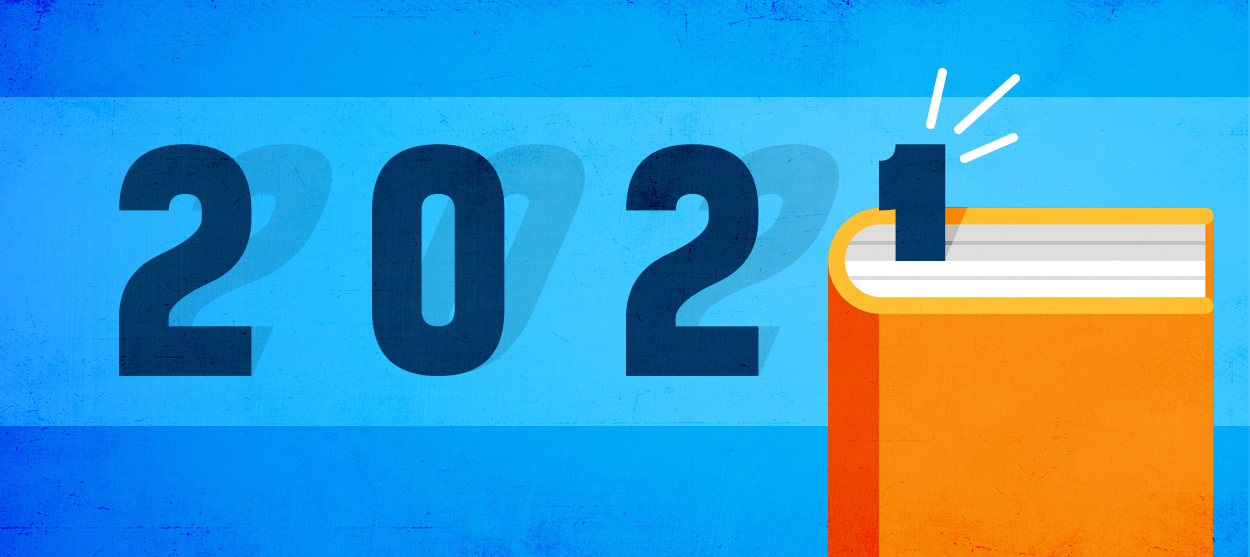
A free daily email with the biggest news stories of the day – and the best features from TheWeek.com
You are now subscribed
Your newsletter sign-up was successful
It has been nearly a year now since most of us have enjoyed a book in any of the usual places: a coffee shop, on a commute, in an airplane, on a beach. But that hasn't stopped people from reading — in fact, the opposite. Speaking personally, 2020 made me extra grateful for all the moments I spent with paper and ink, away from yet another screen containing no good news.
Now we seem on the cusp of what is hopefully the beginning of the end, and it becomes possible again to imagine reading books in places like coffee shops or on transcontinental flights. But our to-be-read piles might be starting to look a little shorter after all those months in quarantine.
Okay, okay, who're we kidding? There's no such thing as too many books. Here are 23 (plus a few additional suggestions) that you'll want to be sure to add to your heap.
The Week
Escape your echo chamber. Get the facts behind the news, plus analysis from multiple perspectives.

Sign up for The Week's Free Newsletters
From our morning news briefing to a weekly Good News Newsletter, get the best of The Week delivered directly to your inbox.
From our morning news briefing to a weekly Good News Newsletter, get the best of The Week delivered directly to your inbox.
January
1. Outlawed, by Anna North (Jan. 5)
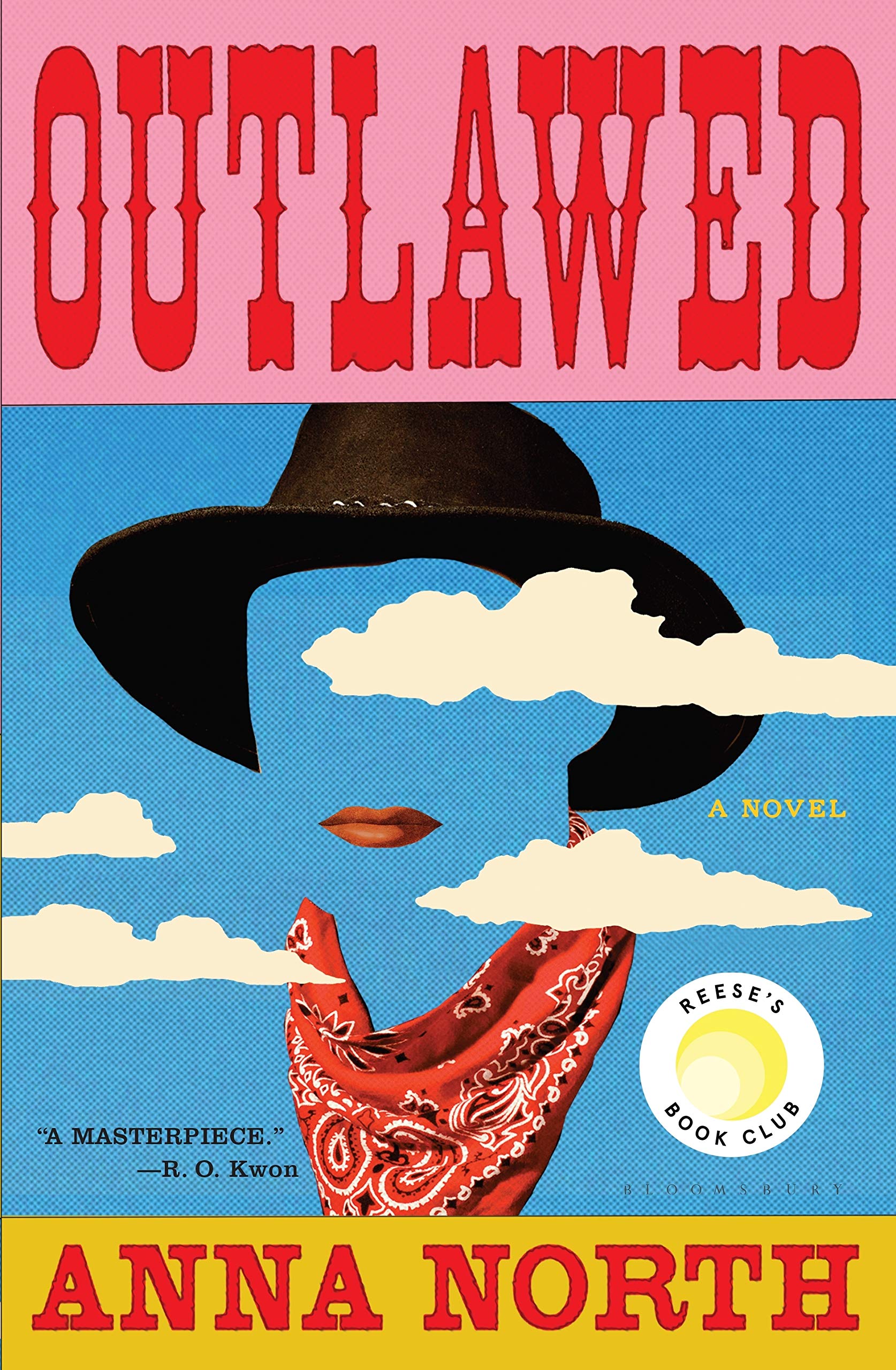
There is something both thrilling and intimidating about the first book of the year to receive rave reviews, and we didn't have to wait long for it in 2021. Published during the first week of the New Year, Anna North's Outlawed sets a high bar for the 12 months of publishing still to come: A feminist alt-history Western, it takes place in the Old West some 60 years after the Great Flu has killed off 90 percent of the American population. Ada, 17, lives in a patriarchal community where her worth hinges on her fertility, and when she fails to become pregnant, she lights off — only to fall in with the Hole in the Wall Gang, led by a person known as the Kid. The book is primed for an adaptation — paging Hollywood! — as it upends the tropes of the traditionally macho and heteronormative genre while also being a rip-snortin' good read, too.
2. Nora: A Love Story of Nora and James Joyce, by Nuala O'Connor (Jan. 5)
A free daily email with the biggest news stories of the day – and the best features from TheWeek.com
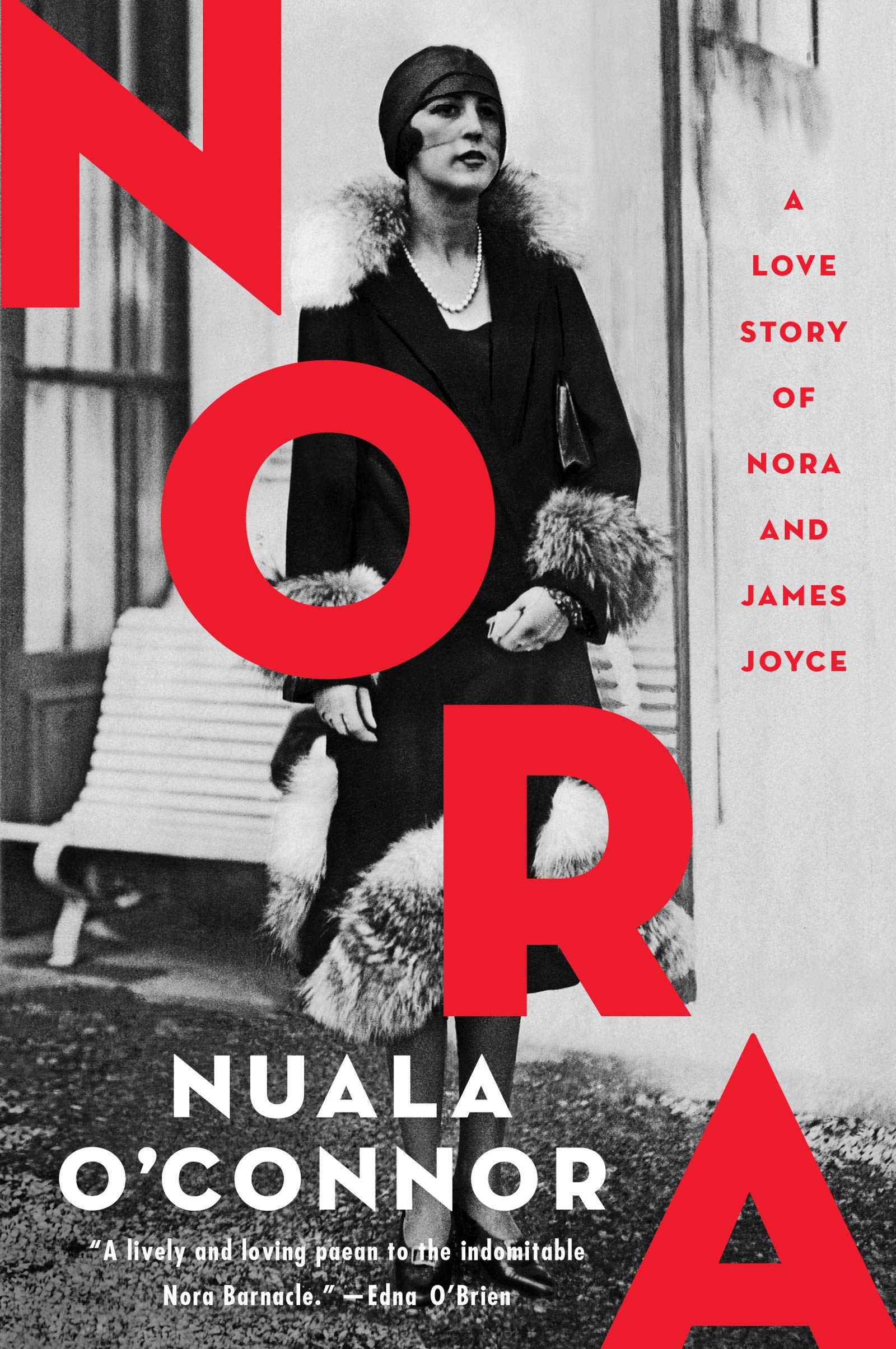
Behind every great male author is a book waiting to be written about his wife — or something like that. The past several years have been replete with fictional accounts of history's fascinating and overlooked literary lovers: Z, by Therese Anne Fowler, about F. Scott Fitzgerald's wife, Zelda; The Paris Wife, by Paula McLain, about Ernest Hemingway and his wife, Hadley; or The Secrets We Kept, a novel that spins off from the affair between Boris Pasternak and his muse, Olga Ivinskaya. This year, readers can slip into the famously steamy relationship between Irish writer James Joyce and his partner, Nora Barnacle, who was the model for Molly Bloom in Ulysses. Author Nuala O'Connor first explored the couple's relationship in "Gooseen," published in Granta, which won the U.K.'s 2018 Short Fiction Prize and was admired by the judges for being "a finely-balanced weighting … between the raunchy, delicious beginnings of a love affair, and the more poignant aspects of Nora's inner life."
3. That Old Country Music: Stories, by Kevin Barry (Jan. 12)
Kevin Barry is well established at this point as one of the 21st century's best short fiction writers, though I'd argue his mastery is over an even briefer form: the sentence. Nights in this west Ireland-set collection are "bleak continents." In a home, "misery was essayed everywhere, in the lentils soaking on the draining board" and the way its owner "tried to scour a tea mug with his index finger under the running tap." Of the protagonist in the collection's title story, Barry explains neatly: "Her man in jail and a child at the breast — it was all playing out by the chorus and verse." Melancholic, romantic — however you want to describe it, That Old Country Music is as lonely as a ballad, and at times as sentimental. That won't work for everyone but "by my count, six of [the 11 stories in the collection] are unimprovable masterpieces," wrote Kevin Power for The Irish Independent. "Four of the others are merely (merely!) very, very good."
4. The Doctors Blackwell, by Janice P. Nimura (Jan. 19)
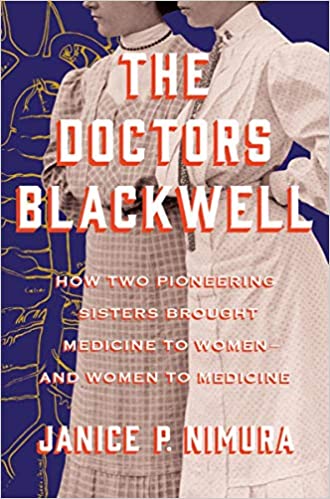
If — heaven forbid — you are hospitalized with COVID-19, there is an overwhelming chance that your care will fall, at some point, into the hands of a woman; today, over three-quarters of the jobs in the health-care industry are held by female workers. Of course, it wasn't always this way; Janice P. Nimura's The Doctors Blackwell serves as an impressive double biography of the sisters who blazed the way for women in the industry. The story centers on Elizabeth Blackwell, who would become the first woman in the U.S. to earn an M.D. in 1849, while her younger sister Emily followed in her footsteps and became the third. Hardly a staid medical history — Kirkus Review raves the book "reads like a work of historical fiction" — The Doctors Blackwell is also a portrait of a new country, with appearances by characters like Abraham Lincoln, Harriet Beecher Stowe, and Susan B. Anthony. Though Nimura "probably didn't anticipate that her second book … would appear during a plague year," writes The Wall Street Journal, The Doctors Blackwell nevertheless "places the stubborn, brilliant Blackwell sisters in an America that seems both utterly foreign and jarringly familiar."
Also noteworthy in January: In the Land of the Cyclops, by Karl Ove Knausgaard, tr. Martin Aitken (Jan. 5); The Inland Sea, by Madeleine Watts (Jan. 12); A Swim in a Pond in the Rain: In Which Four Russians Give a Master Class on Writing, Reading, and Life, by George Saunders (Jan. 12); Aftershocks, by Nadia Owusu (Jan. 12); Burnt Sugar, by Avni Doshi (Jan. 26)
February
5. Milk Fed, by Melissa Broder (Feb. 2)
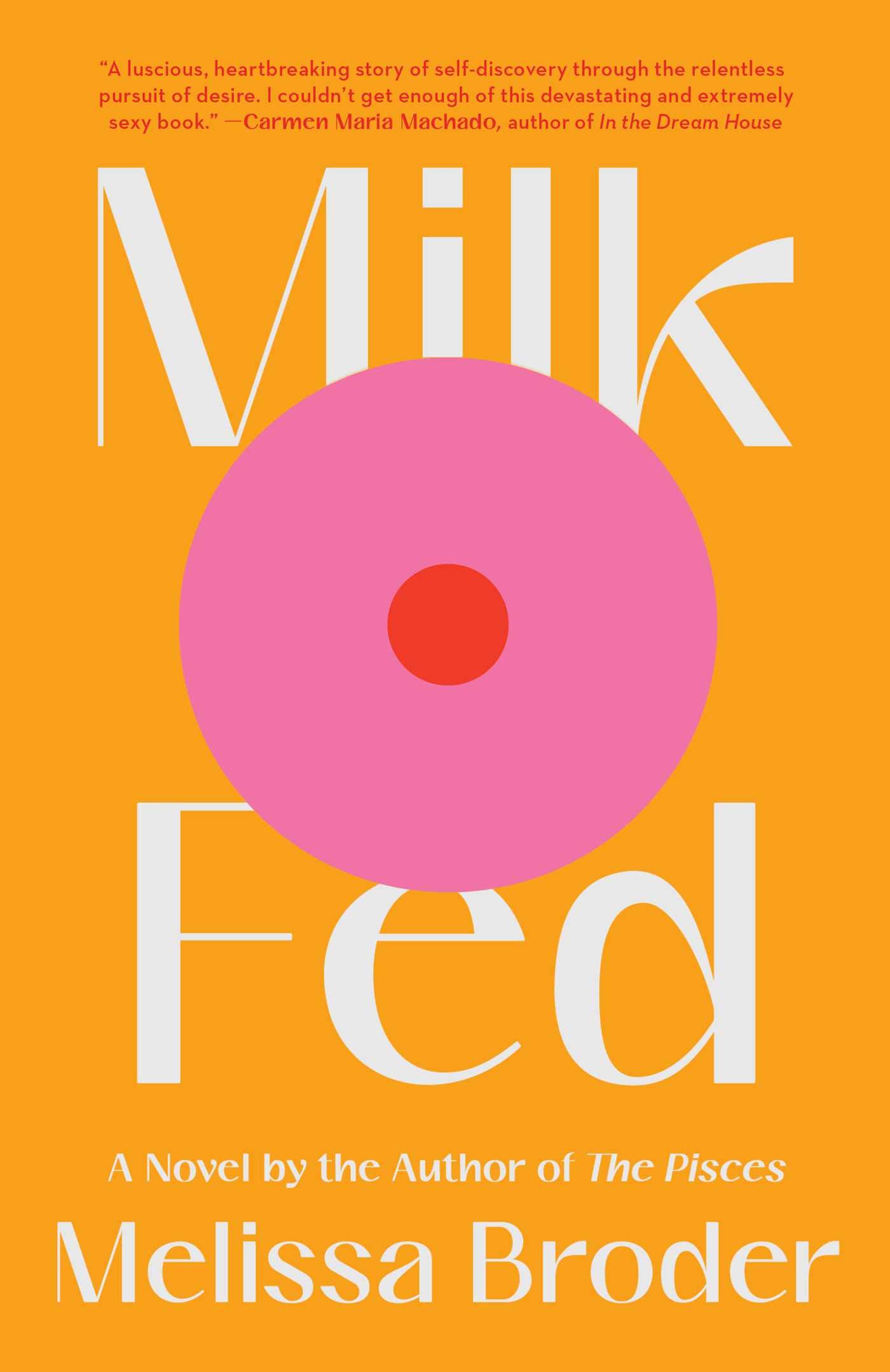
I've been a fan of author and poet Melissa Broder going back to the days before she revealed herself to be the mastermind behind "Twitter's funniest ball of anxiety," @SoSadToday. Now an essay collection, fourth poetry collection, and debut novel later, Broder returns with Milk Fed, a scrumptious sophomore novel about a weight-obsessed woman, Rachel, who temporarily breaks off communication from her toxic, calorie-counting mother only to fall into an affair with Miriam, an Orthodox Jewish woman who "surpassed plump, eclipsed heavy." Carmen Maria Machado calls Milk Fed a "luscious, heartbreaking story of self-discovery through the relentless pursuit of desire," and Broder's funny, semi-sweet writing will leave you ravenous for more. (A second helping is potentially on the way, too: Little Fires Everywhere's producer Liz Tigelaar was part of a deal landing the book's television rights).
6. The Absolute Book, by Elizabeth Knox (Feb. 9)
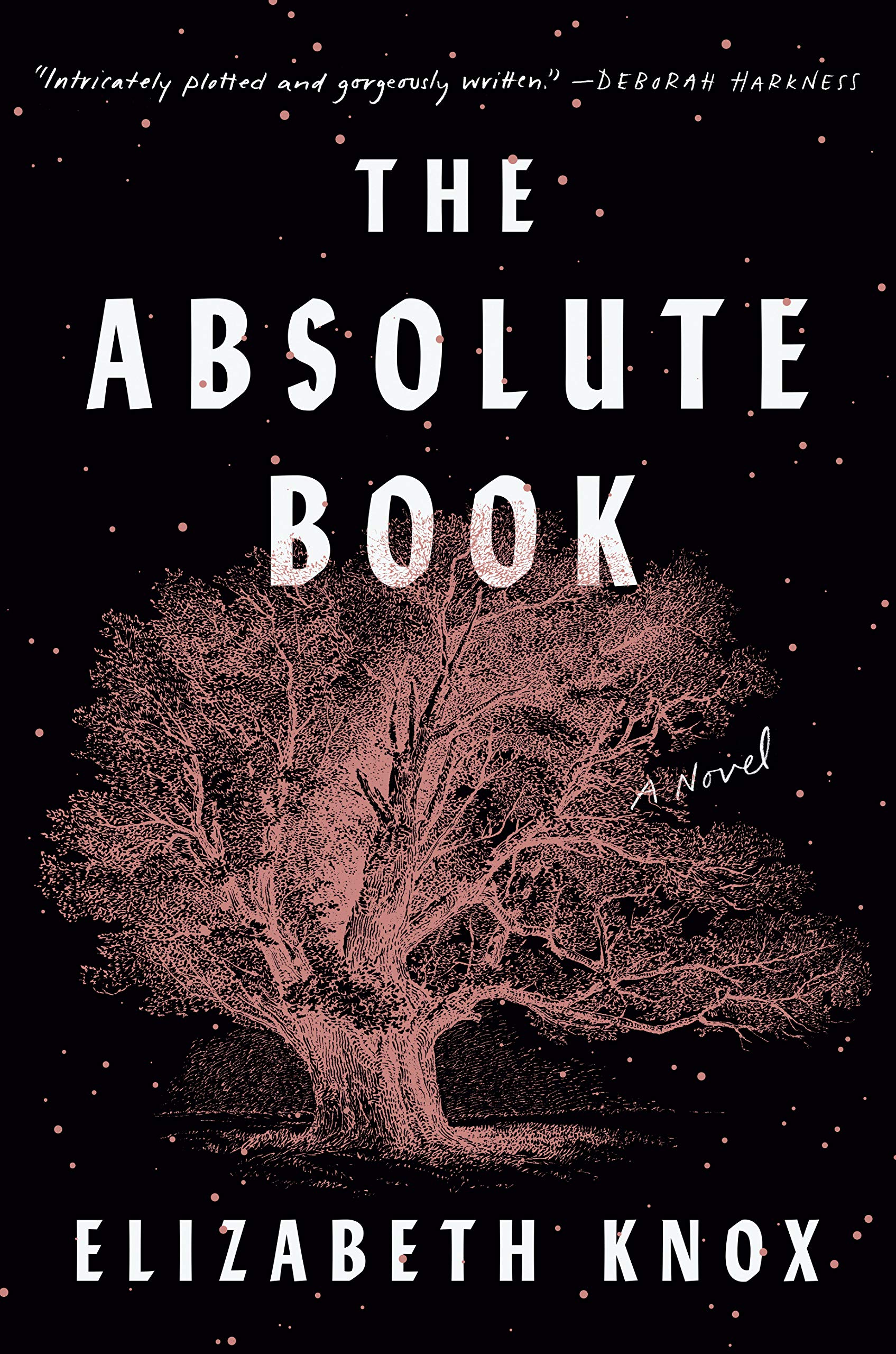
A year ago, Slate's Dan Kois raved about a new book he'd read. "The experience … reminded me of how I felt reading Jonathan Strange and Mr. Norrell or The Left Hand of Darkness or His Dark Materials or, to move out of genre, Life After Life or The Underground Railroad," he wrote, adding that when he finished the novel, "I wanted everyone I knew to read it so I could discuss it with them." There was only one problem: The Absolute Book, by New Zealand writer Elizabeth Knox, was practically only available in the author's home country. After Kois' article sparked a bombardment of international orders from a Wellington-based bookstore, though, Viking at last sealed a deal for American and Canadian publication. At risk of giving too much away, The Absolute Book is described as a contemporary fantasy and thriller that sweeps through multiple realms, as the protagonist, Taryn Cornick, seeks revenge for the death of her sister. To quote another reviewer, "My only complaint is that I will never again get to read this book again for the first time."
7. Under a White Sky: The Nature of the Future, by Elizabeth Kolbert (Feb. 9)
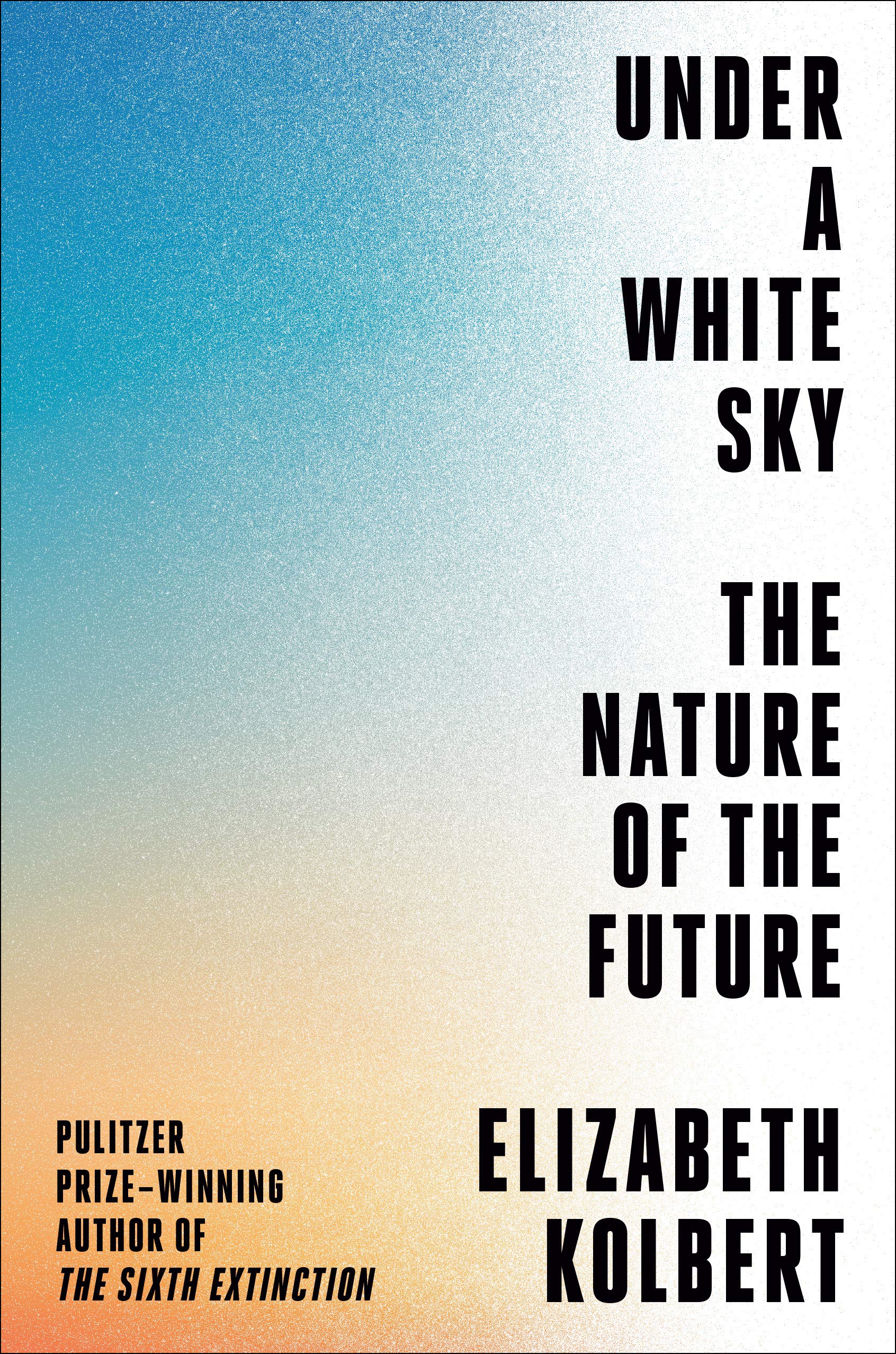
It's difficult to overstate how major Elizabeth Kolbert's The Sixth Extinction: An Unnatural History was when it came out in 2014. The Pulitzer Prize winner, which was later listed first in The Guardian's 100 Best Nonfiction Books of All Time, describes how we are living through the most devastating extinction event since the dinosaurs were wiped out — that while "Homo sapiens may have enjoyed brilliant success on Earth," we have done so "at the expense of virtually every other species," in the words of The Guardian. Needless to say, then, Kolbert's first book since The Sixth Extinction, Under a White Sky: The Nature of the Future, is a big freaking deal. Having already earned duel starred reviews from the major trades, Kolbert's latest focuses on how humans are working to reverse the damage done by centuries of civilization, from the scientists who are striving to save the rarest fish in the world to biologists who are working to breed "hardier corals" in the hopes of "[reengineering] the world's reefs to survive acidification and climate change." If The Sixth Extinction's premise was "we're all doomed," Under a White Sky examines how we're now — perhaps too belatedly — attempting to take this uncertain destiny back into our own hands.
8. No One Is Talking About This, by Patricia Lockwood (Feb. 16)
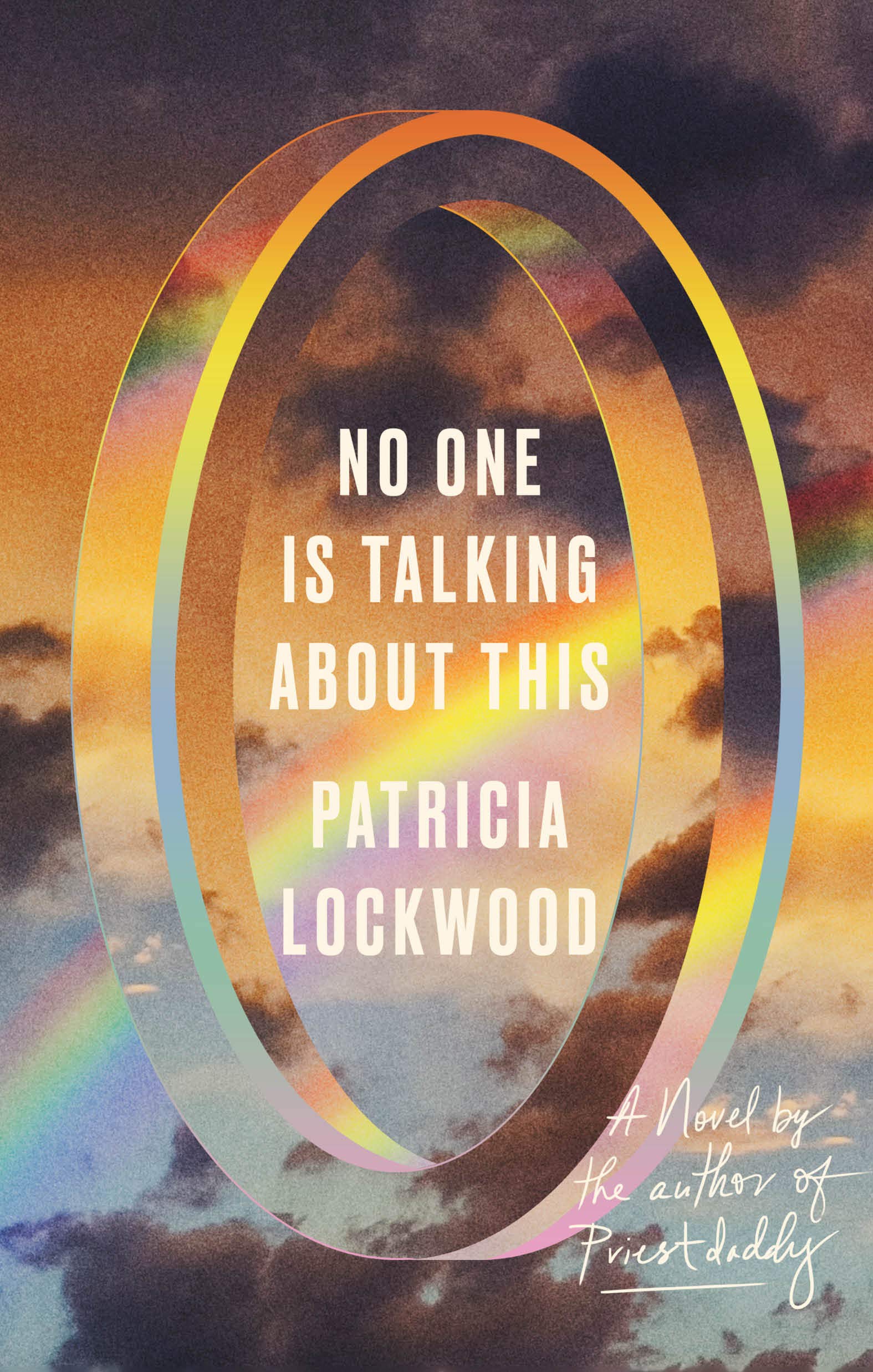
It is a hilarious time to be alive. Yes, the world is, metaphorically speaking, an inflamed dumpster drifting down a river, but it's also objectively … very funny. Poet, memoirist, and Twitter user Patricia Lockwood knows this tension well; her brilliant viral poem, "Rape Joke," eggs on laughter while being completely devastating at the same time. Her debut novel, No One Is Talking About This, also holds both the hilarity and the tragedy of life in one hand. The novel's unnamed protagonist writes viral tweets and blog posts, and travels the world discussing them. But while abroad, she is urged back home to Ohio by her mother; it turns out her sister is having complications with her pregnancy, and her baby has a rare genetic disorder. The novel gets as close to "recreating the way the internet — mindless absurdity, stuff about butts, random profundity — feels," Lit Hub explains. But it is also so much more insightful than a mere snapshot, too. As the protagonist muses: "If all she was was funny, and none of this was funny, where did that leave her?"
9. Winter Pasture, by Li Juan, tr. Jack Hargreaves (Feb. 23)
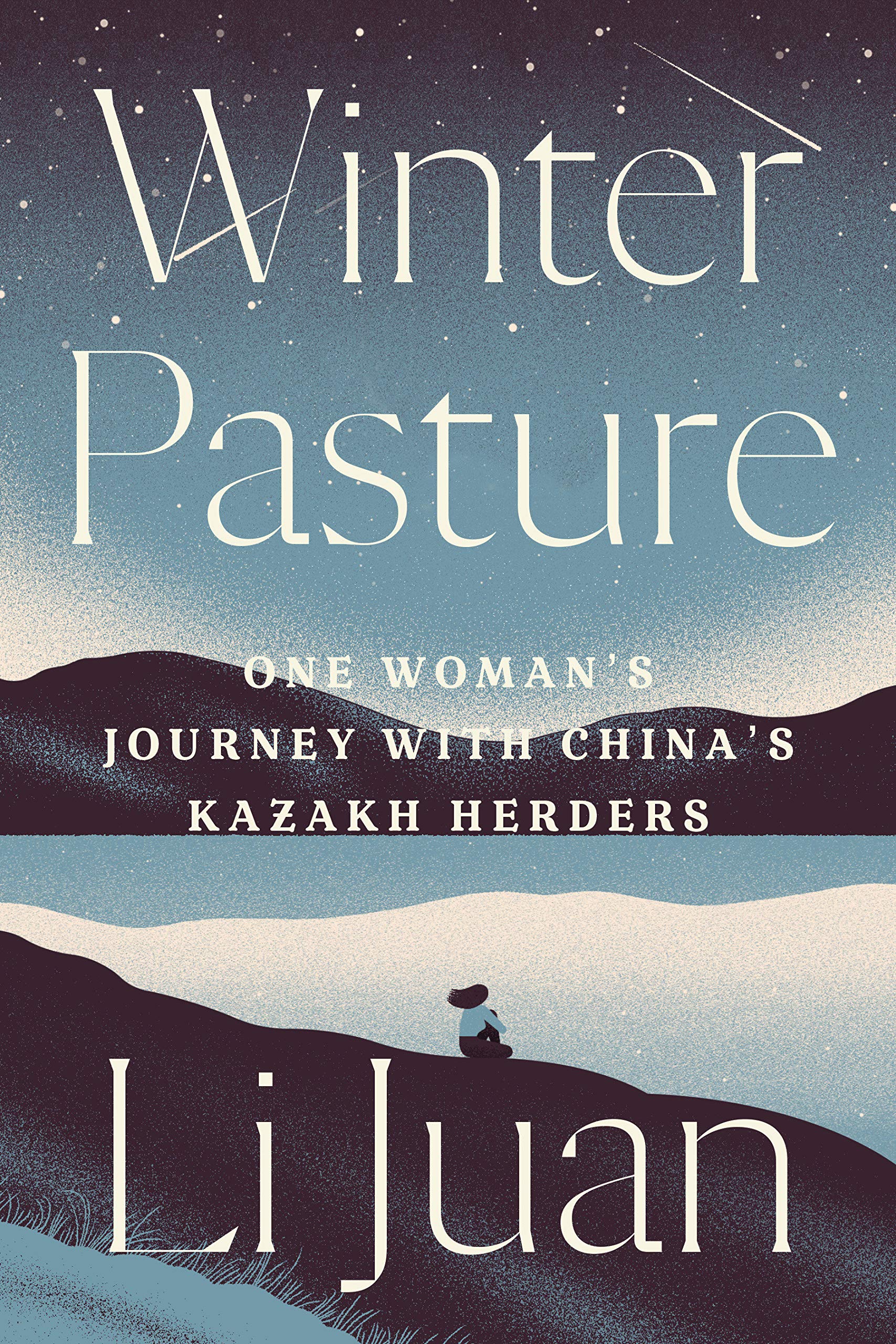
In Winter Pasture, Chinese essayist Li Juan travels to the Altai region of China, near the border with Kazakhstan and Mongolia, to live with the nomadic Cuma family, who are in the process of herding their sheep, camels, cattle, and horses (plus a dog and a cat) to their winter grounds. The New York Times describes Li as an author who is "as far outside of the system as Chinese writers are able to get and still publish," though Winter Pasture is a bestseller in her native country, lauded for its unique blend of narrative travelogue and nature writing. Named back in 2016 as one of the "10 Chinese Women Whose Writing Should Be Translated," Li is only just now getting introduced to audiences in America with this publication of Winter Pasture, which the Times separately praises for being "full of humor, introspection, and glimpses into a vanishing lifestyle."
Also noteworthy in February: The Removed, by Brandon Hobson (Feb. 2); Fake Accounts, by Lauren Oyler (Feb. 2); My Year Abroad, by Chang-rae Lee (Feb. 2); Animal, Vegetable, Junk: A History of Food, from Sustainable to Suicidal, by Mark Bittman (Feb. 2); Gay Bar: Why We Went Out, by Jeremy Atherton Lin (Feb. 9)
March
10. Klara and the Sun, by Kazuo Ishiguro (March 2)
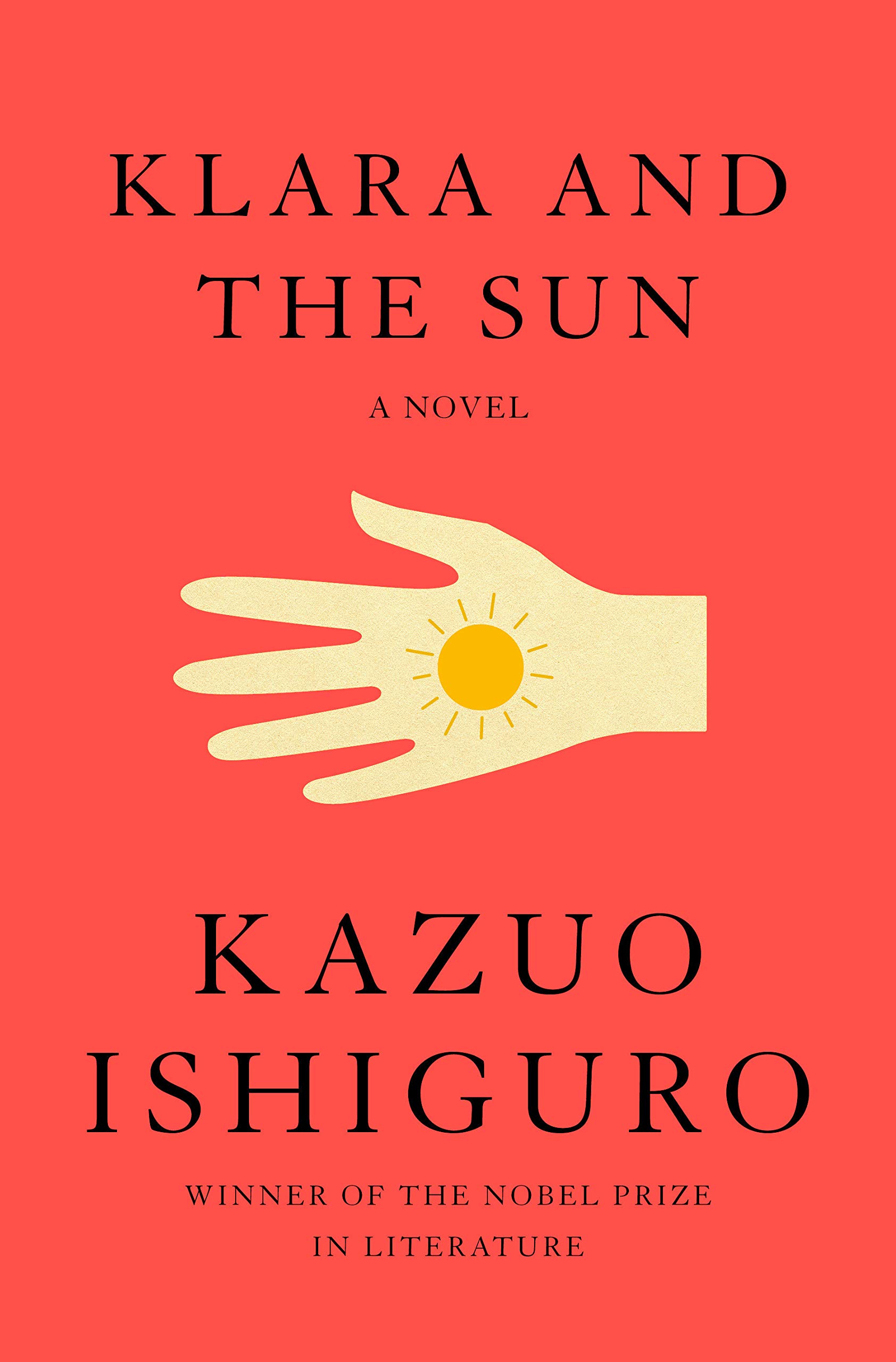
Sound the Ishiguro klaxon, there is a new novel on the horizon! The Nobel laureate and author of the Man Booker-winning Remains of the Day returns this spring with his first new book since The Buried Giant was released half a decade ago, in 2015. The novel is reportedly about Klara, an intelligent "Artificial Friend" robot who, due to being an outdated model, waits in a store to be sold to a human companion. At long last she is picked by an ailing teenager named Josie; as Josie's condition worsens, Klara begs the sun to make her well again. Kirkus Reviews calls the story a "haunting fable" that is "entirely too plausible," while Publishers Weekly reports the book is a "dazzling genre-bending work." With such glowing early reviews, this will undoubtedly be the season's must-read.
11. The Committed, by Viet Thanh Nguyen (March 2)
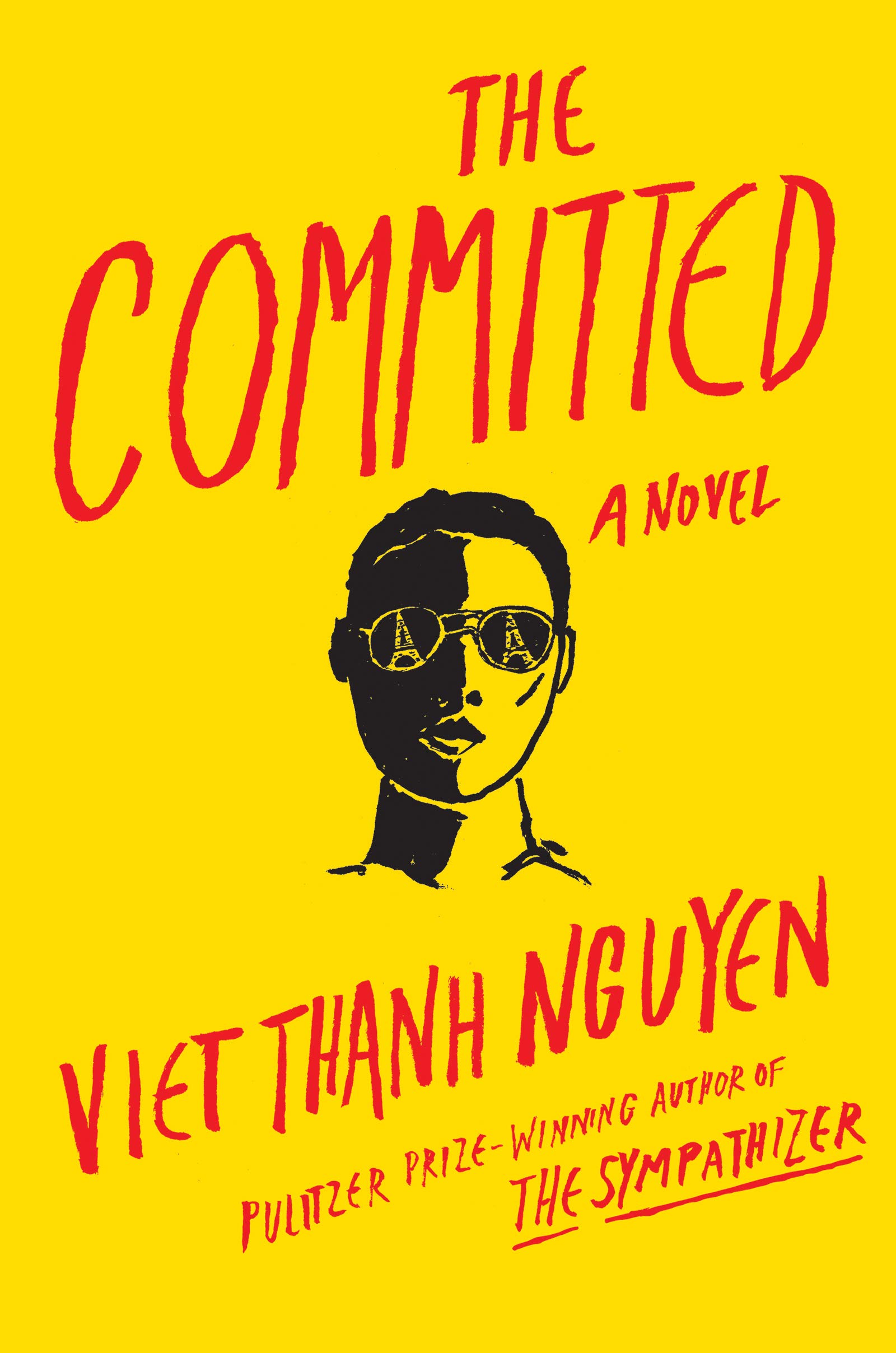
The sequel to Nguyen's Pulitzer Prize-winning The Sympathizer, The Committed picks up with the novel's unnamed north Vietnamese protagonist, who arrives in Paris as a refugee and reconnects with his "blood brother," Bon, who doesn't know he'd been a double-agent in the war. Still "making bad choices in his life," in the words of Nguyen, the main character gets a gig drug dealing, putting him at odds with a rival gang of Arabs, despite their nations' similar histories of French occupation. "There's plenty of 'crime and violence and drugs,' but also engagement with race, colonialism, and pluralism — tensions that are still roiling contemporary France in 2020," the Los Angeles Times explains. Intrigued, but have no time to read (or refresh yourself on) the first book? The Committed "works both as sequel and standalone, with Nguyen careful to fold in needed backstory," Publishers Weekly confirms.
12. But You're Still So Young: How Thirtysomethings Are Redefining Adulthood, by Kayleen Schaefer (March 2)
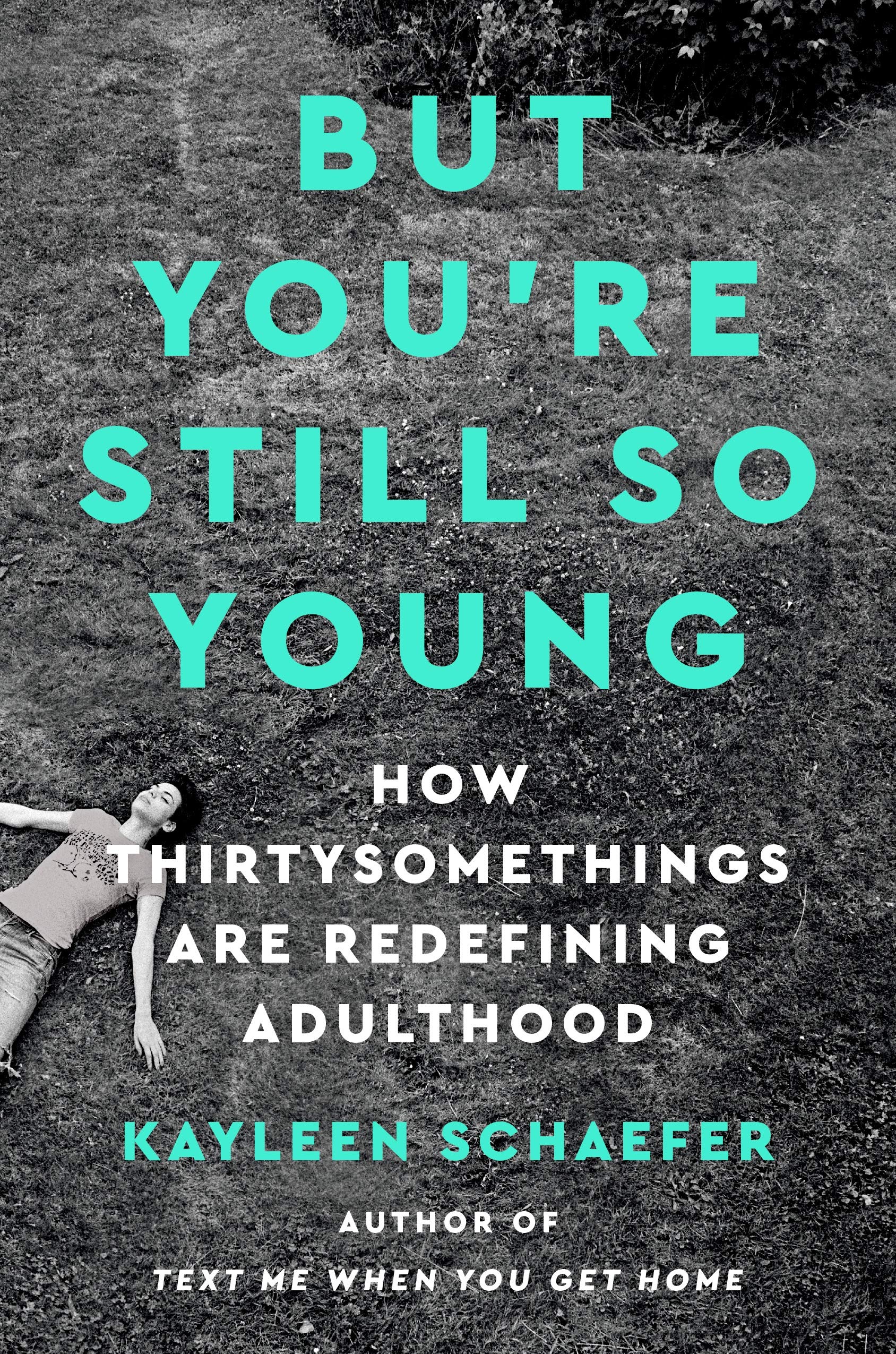
According to sociologists, there are five major markers of adulthood: finishing school, leaving home, marriage, gaining financial independence, and having kids. But for Millennials, many of whom are now in their 30s, the world is very different than the one their parents grew up in, thanks to crippling college debt, economic turmoil, the gig economy — not to mention a once-in-a-lifetime pandemic. Marriage rates are down, rates of living with one's parents are up, and it can feel at times like you've somehow gotten everything wrong. Tapping into sociology, psychology, as well as reported interviews before and during the COVID-19 outbreak, Kayleen Schaefer (who also wrote the great book about modern female friendship, Text Me When You Get Home) paints a picture of what weighs unfairly on the shoulders of modern 30-year-olds, as structured in five parts around the traditional milestones of adulthood.
Also noteworthy in March: Last Call: A True Story of Love, Lust, and Queer New York, by Elon Green (March 9); Double Blind, by Edward St. Aubyn (March 16); Mona, by Pola Oloixarac, tr. Adam Morris (March 16); A Little Devil in America: Notes in Praise of Black Performance, by Hanif Abdurraquib (March 30); Of Women and Salt, by Gabriela Garcia (March 30)
April
13. The Five Wounds, by Kirstin Valdez Quade (April 6)
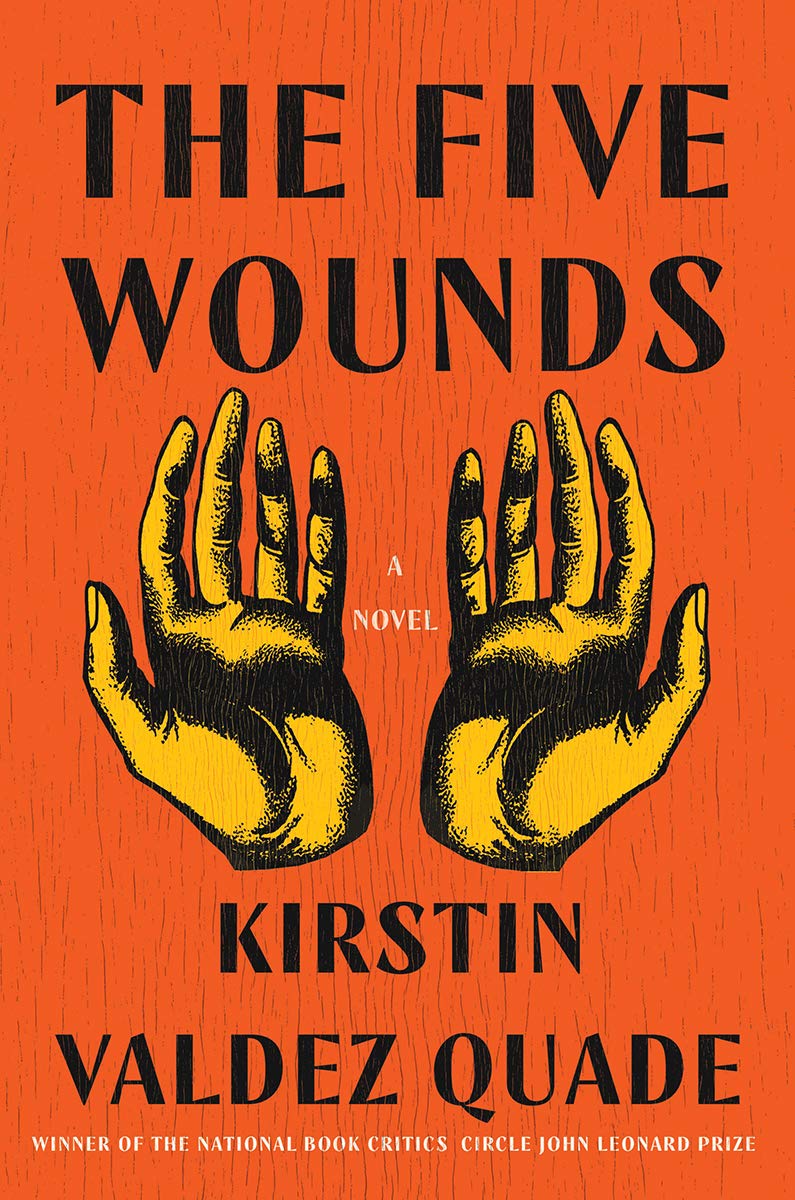
This is not only my most-anticipated book of the year, but my most-anticipated book of the past half-decade. Ever since the release of Kirstin Valdez Quade's phenomenal, award-winning debut collection, Night at the Fiestas, in 2015, I have been champing at the bit waiting for her novel, which expands on her short story by the same name. (My anticipation has, I regret, reached rather embarrassing levels at times; several years ago, I even feverishly wrote to Quade's publisher demanding to know how much longer I'd have to suffer waiting for her next book). The Five Wounds is set in Las Penas, New Mexico, and begins as ne'er-do-well Amadeo Padilla prepares to play Jesus in the local Good Friday procession — only for his intense preparations to be disrupted by the appearance of his 15-year-old daughter, Angel, who shows up pregnant. I hardly have a monopoly on my enthusiasm for Quade: she's impressed Andre Dubus III, who once selected her for the National Book Awards "5 under 35" list, while Roxane Gay has already picked The Five Wounds for her book club. I can't be too jealous, though — Quade deserves all the praise and more. Her writing, and the gift of this new novel, are nothing short of miraculous.
14. The Hard Crowd: Essays 2000-2020, by Rachel Kushner (April 6)
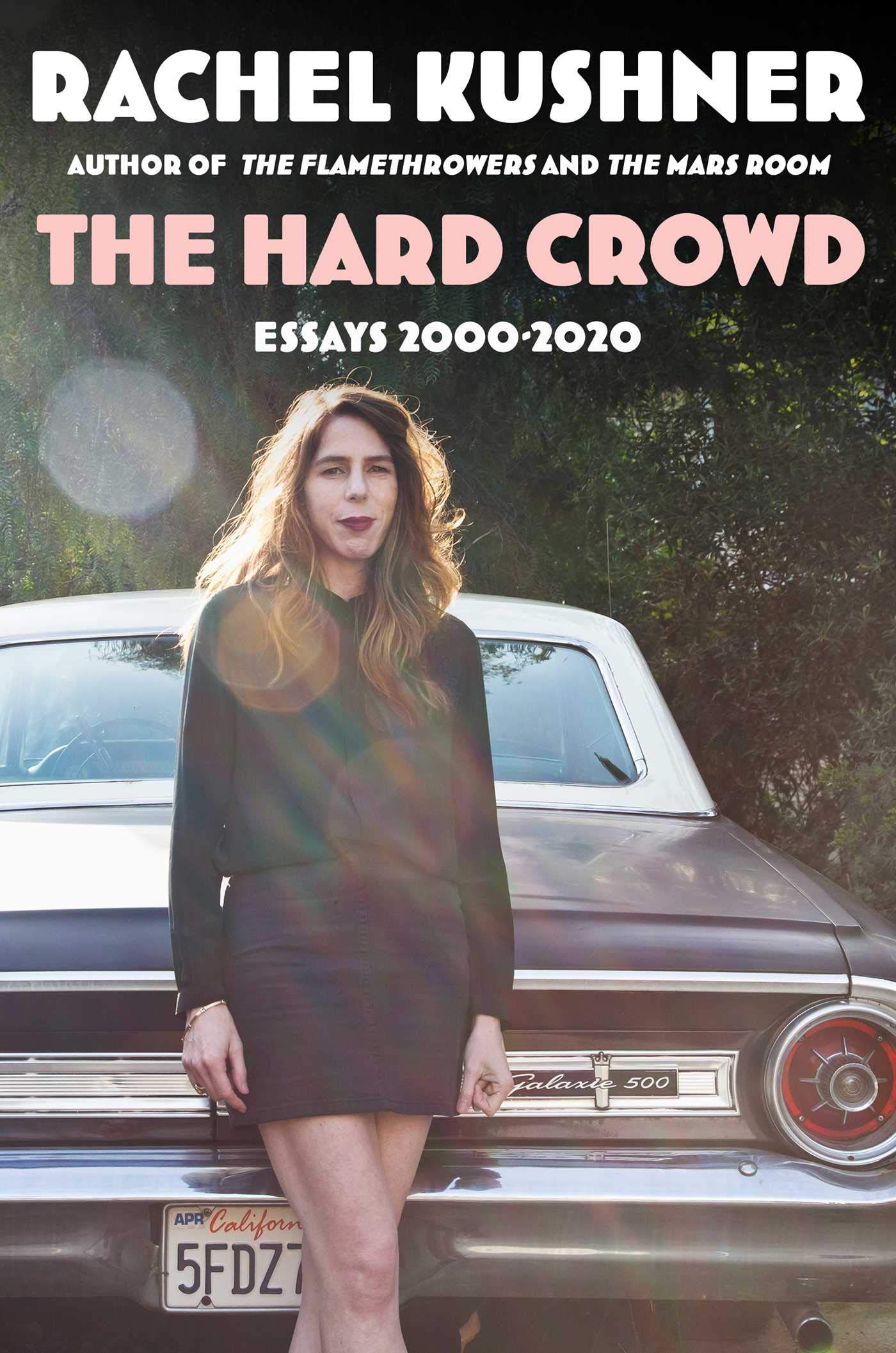
The best way I can think to describe Rachel Kushner, one of my favorite writers, is that she is cool in the way that the older siblings of your best friends were cool when you were younger: cool in a way that is both effortless, and out-of-reach. In the essays in The Hard Crowd, she survives a motorcycle crash in Mexico, visits a Palestinian refugee camp in East Jerusalem, name drops the eccentric characters of San Francisco in the 1980s, and reads Clarice Lispector. Swoon. The collection promises to be a survey of her work both "new and old," though the broad scope makes this collection more than just a must for her most die-hard fans. The Hard Crowd is sure to be one of the strongest and most worthwhile essay collections of the year.
15. Hype: How Scammers, Grifters, and Con Artists Are Taking Over the Internet—and Why We're Following, by Gabrielle Bluestone (April 6)
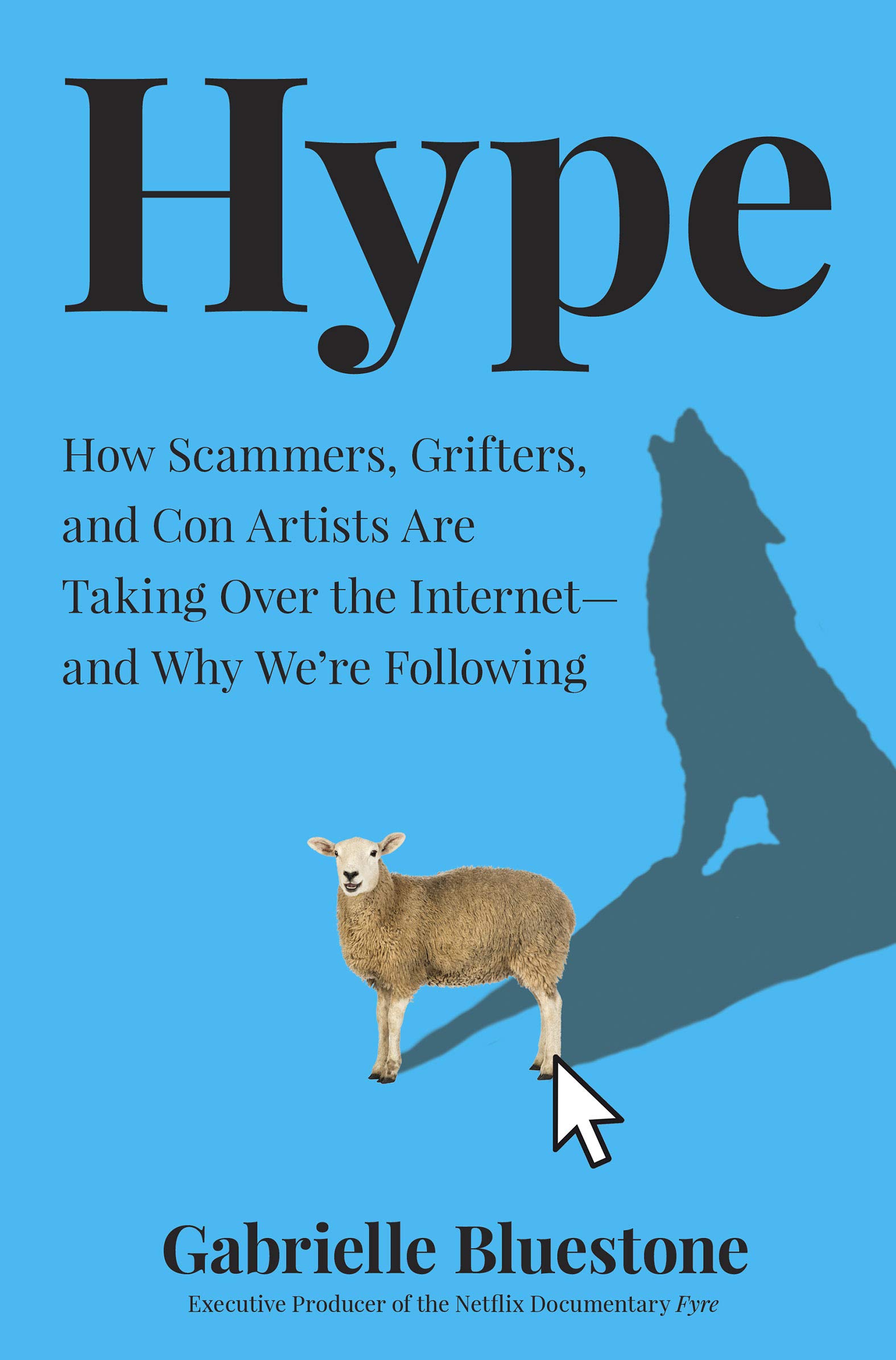
"THIS IS NOT A SCAM" is how Gabrielle Bluestone announced her book deal, and can you blame her for the warning? We are living in the "golden age of grifting," from Anthony Gignac, who posed as a Saudi Prince to con investors, to Anna Delvey, who pretended to be an heiress to get money from rich New York socialites, to Theranos founder Elizabeth Holmes, who ran an elaborate blood-testing scam. Then there's the college admissions scandal, and, of course, Fyre Festival — Bluestone served as an Emmy-nominated producer on the Netflix documentary about the scandal, Fyre. You might say, then, that she's a bit of an expert on the topic of her forthcoming book, which looks at the phenomenon of the rise of the "snake oil salesmen of the digital age." One of the most intriguing questions of all is, why would already successful people risk so much with their grifts? "I suspect for the same reasons the Fyre Festival exploded — a pervasive culture of influence, surface appearances, and the fear of missing out so great that you'll do anything, even scam your child's way into college, to avoid it," Bluestone wrote for The Washington Post previously, in a thesis I wouldn't be surprised to see reemerge in this book. "If you're born on third base and don't make it home, the whole team ends up looking a little silly."
Also noteworthy in April: Philip Roth: The Biography, by Blake Bailey (April 6); First Person Singular: Stories, by Haruki Murakami, tr. Philip Gabriel (April 6); The Man Who Lived Underground, by Richard Wright (April 6); Crying in H Mart: A Memoir, by Michelle Zauner (April 20); Whereabouts, by Jhumpa Lahiri (April 27)
May
16. Project Hail Mary, by Andy Weir (May 4)
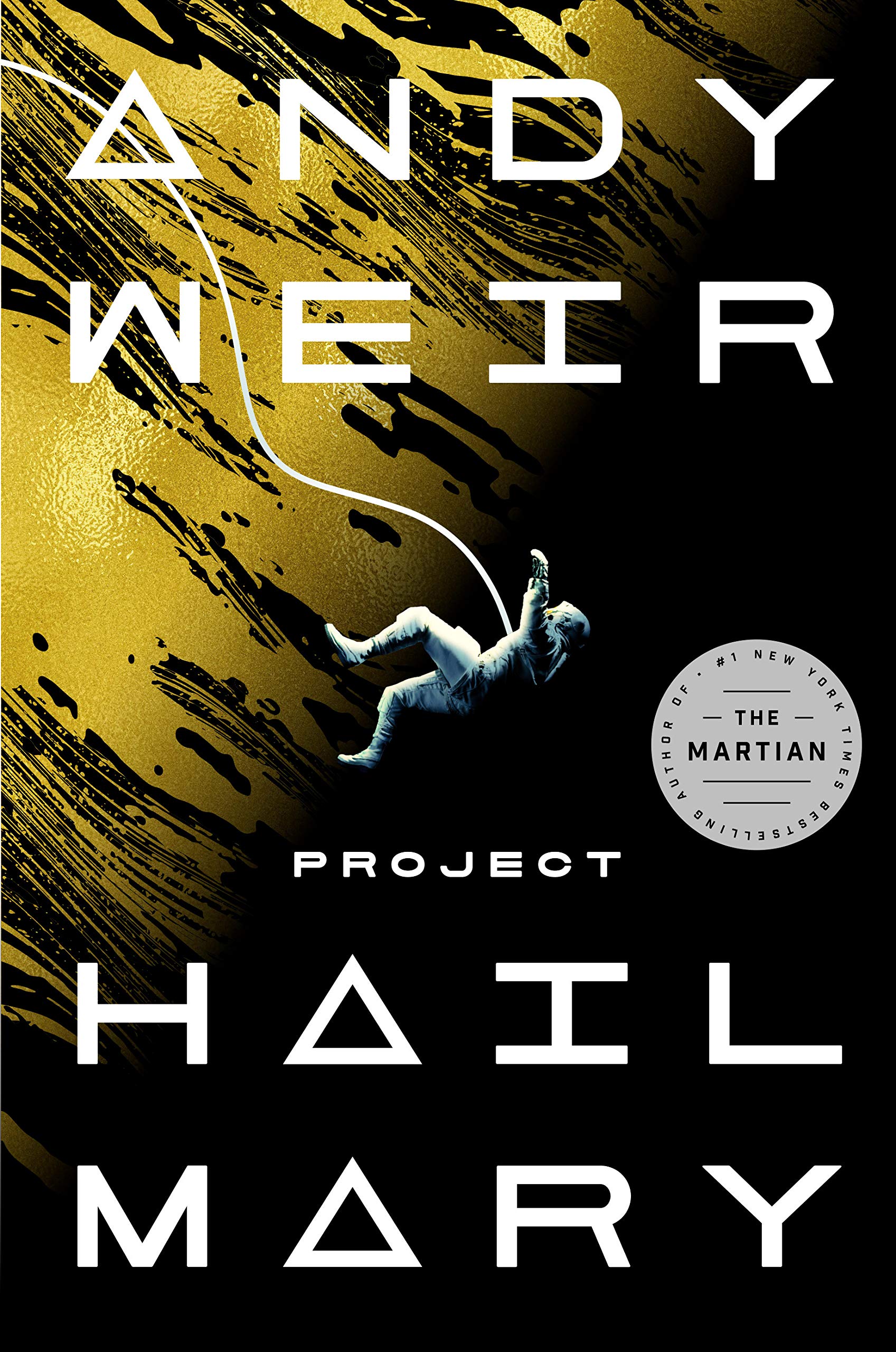
The Martian author Andy Weir has written another book about being alone in outer space. Project Hail Mary is the story of Ryland Grace, the sole survivor of a last-ditch attempt to save planet Earth. There's only one problem: He's just woken up after being asleep for a long time, he's millions of miles from home, he's surrounded by corpses — and he can't remember a thing. (Sound like another great movie? MGM has already purchased the rights, with Ryan Gosling attached to star and produce, Deadline reports). Booklist observes that Weir's writing in Project Hail Mary "flows naturally, and his characters and dialogue crackle with energy … Weir is no longer the self-published wunderkind of The Martian; with this novel, he takes place as a genuine star in the mainstream [sci-fi] world."
17. The Secret to Superhuman Strength, by Alison Bechdel (May 4)
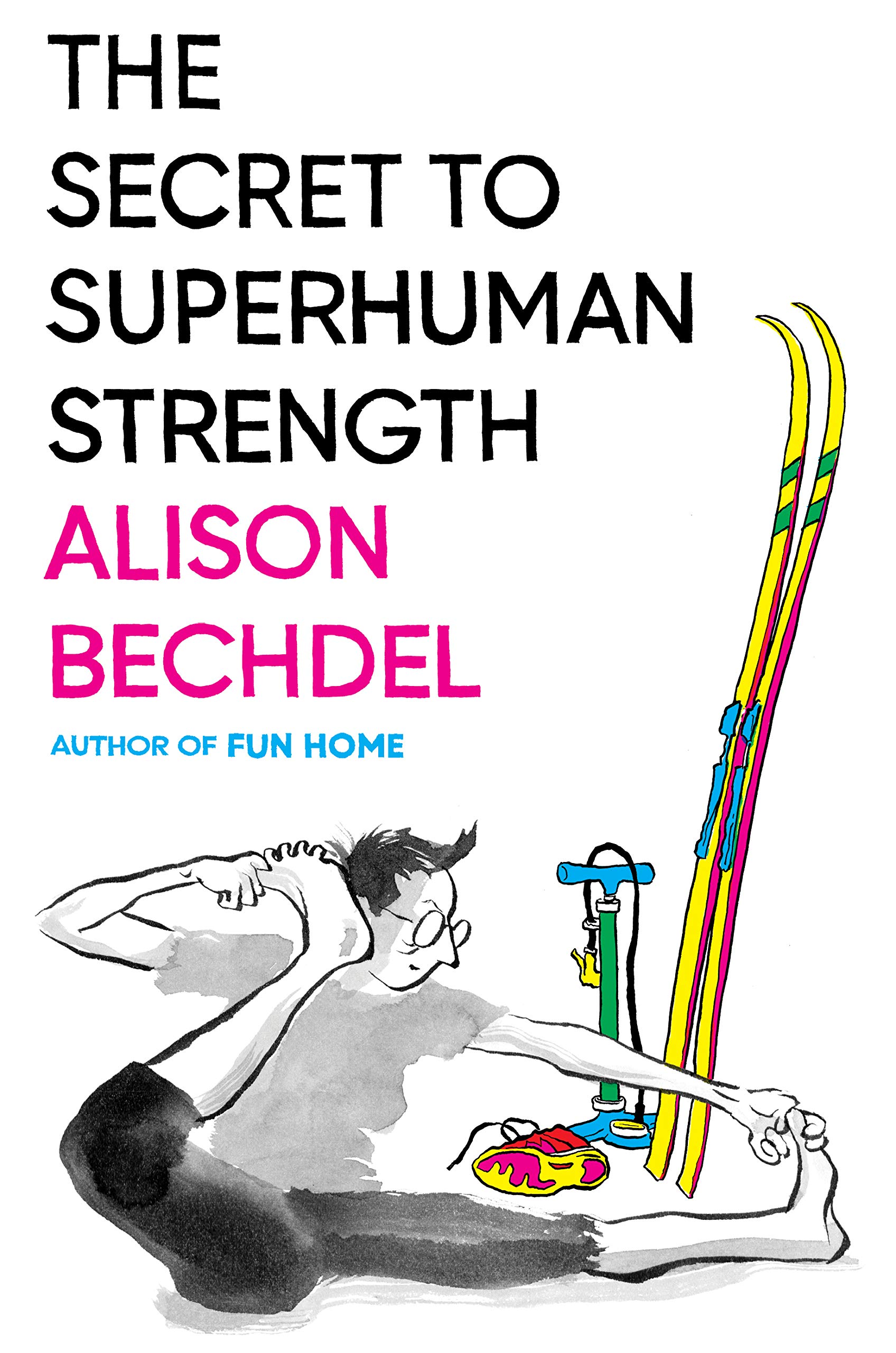
Cartoonist, graphic memoirist, certified genius, and test proctor Alison Bechdel is back with her long-awaited third graphic novel, The Secret to Superhuman Strength, which "chronicles her decades long obsession with various fitness and exercise fads, including downhill skiing, uphill skiing, rollerblading, martial arts, running, hiking, weight lifting and home workout videos, and currently, yoga," her publisher writes. Though that sounds like a departure from Bechdel's other work — 2006's Fun Home dealt with her sexuality and relationship with her father, and 2012's Are You My Mother? deals with her mom — The Secret to Superhuman Strength will definitely have her signature wit and poignant, introspective art on the page. And her humor: "The most outlandish exercise fad I've tried is 'Insanity,' Sean T's maniacal jumping-up-and-down-till-you-can't-any-more workout," Bechdel previewed to the A.V. Club. "I guess it's not so outlandish for young people, but if you're over 50, it's definitely beyond the pale."
18. Pop Song: Adventures in Art & Intimacy, by Larissa Pham (May 4)
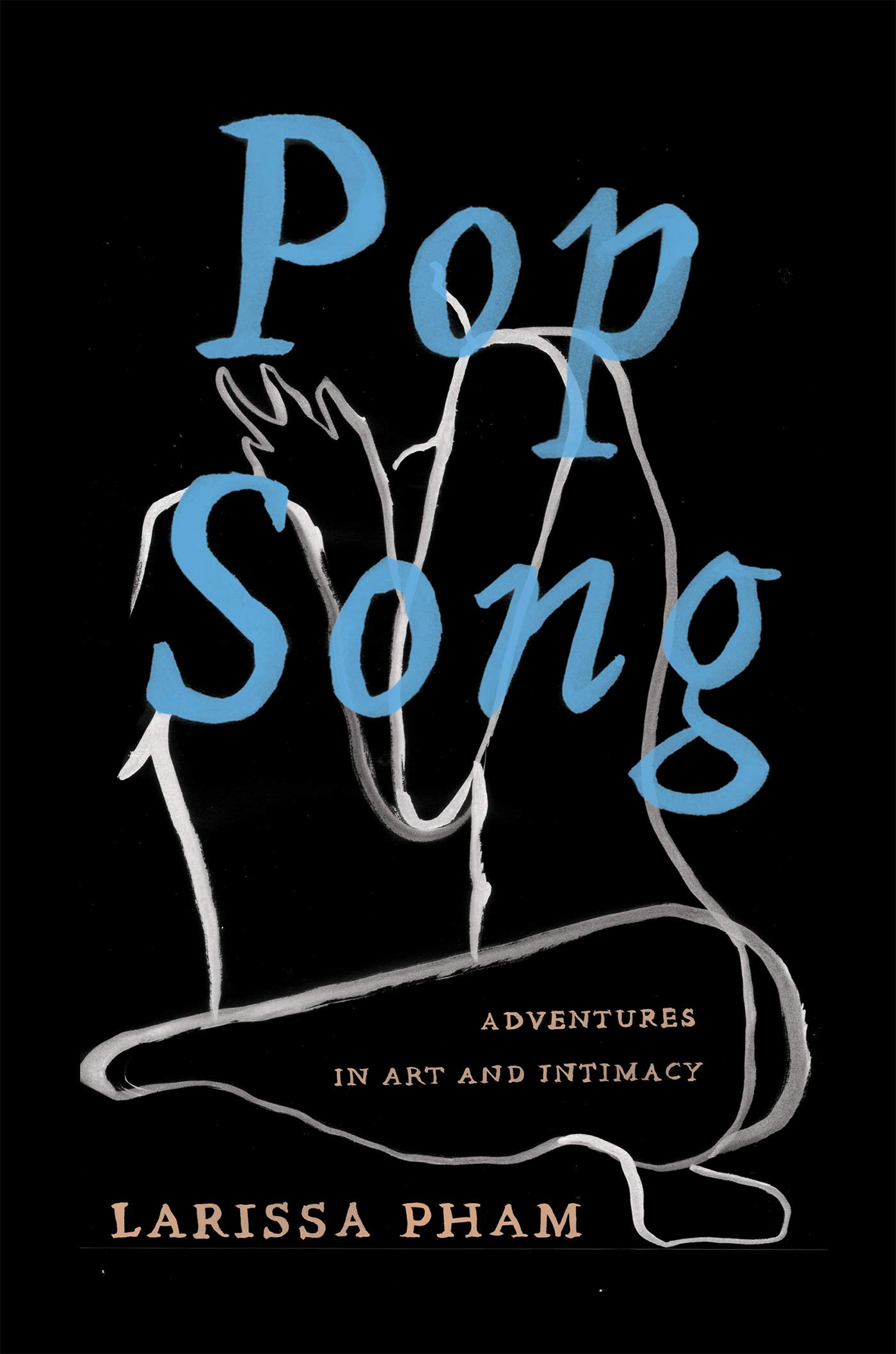
Back in the good old days before everyone had a newsletter, I used to follow Larissa Pham on TinyLetter, where she wrote — first for Nerve, and then for herself — incredible and intimate essays about sex and suffering and being alive. I'm excited that Pop Song sounds like it's a project in the same vein, with her publisher explaining that "Pham writes of her youthful attempts to find meaning in travel, sex, drugs, and art, before sensing that she might need to turn her gaze upon herself." What excites me even more about the project is the promise of more of Pham's penetrating observations: In Pop Song, Pham "builds a magpie-like nest out of cultural references," Harper's Bazaar reveals, including Anne Carson, Frank Ocean, Agnes Martin, and James Turrell. Pham stopped writing her TinyLetter back in 2018, then relaunched it as a Substack in 2019, publishing sporadically ever since. After having spent years following her in only such fits and starts, I can't wait to gobble up her writing in one, nearly 300-page-long whole.
19. While Justice Sleeps, by Stacey Abrams (May 25)
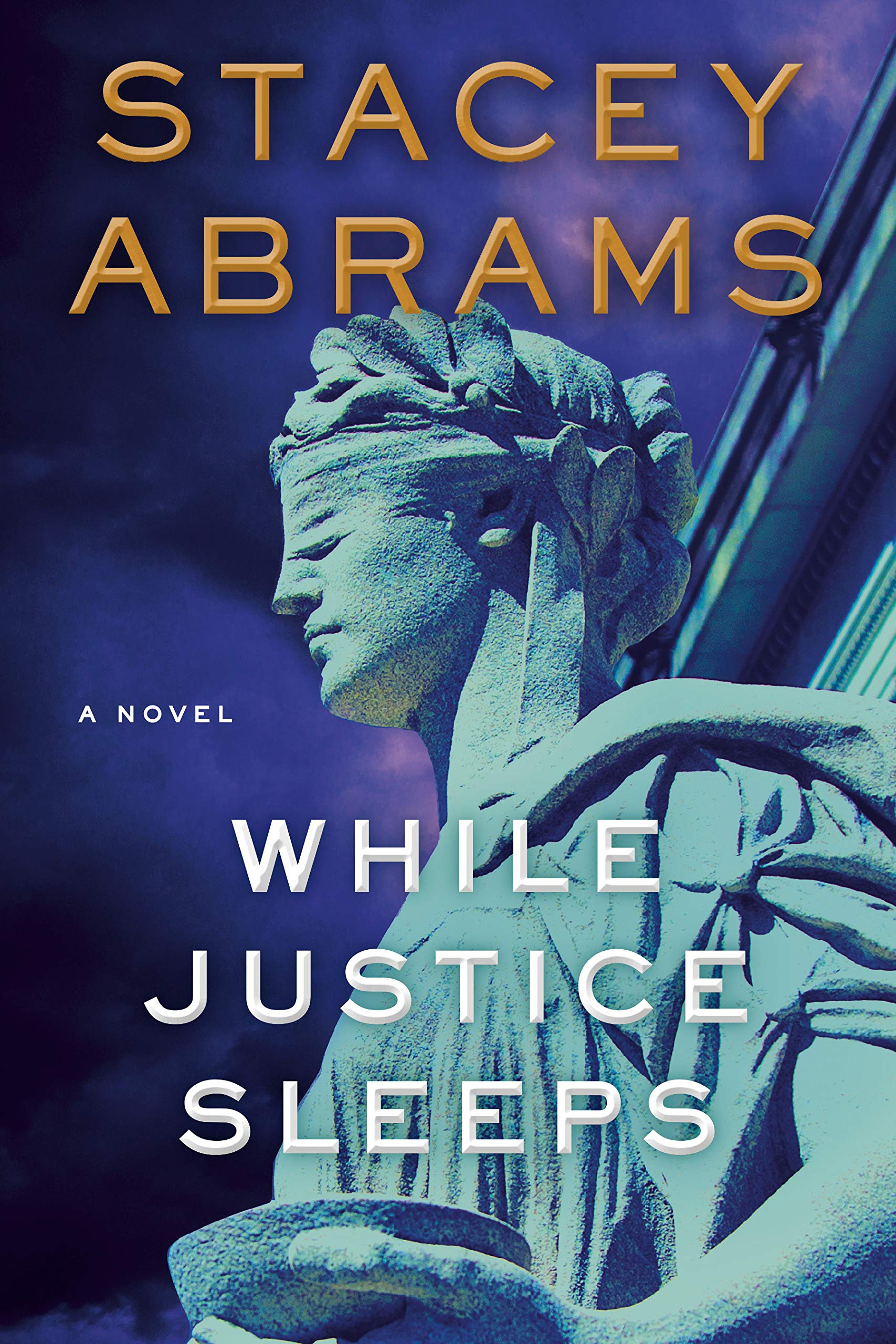
In the apparent free time that former Georgia gubernatorial candidate Stacey Abrams somehow has when she's not turning former Republican strongholds blue, she writes books. It's no secret by now that she's written eight romance novels under the pen name Selena Montgomery, but While Justice Sleeps will be a first: It is a legal thriller, and will be published under Abrams' name. The book reportedly focuses on a young clerk, Avery Keene, who works for the legendary Supreme Court justice Howard Wynn. Circumstances soon plunge Avery into the midst of a legal controversy that "infiltrates the highest power corridors of Washington." Said Abrams of her novel, "The tensions of politics and power are the core of this story — people scrambling for leverage and desperate to win. And having been a young lawyer myself once, I explore what it means to have authority but no real power. How do you navigate those spaces when there is work to be done and you're it?"
Also noteworthy in May: Second Place, Rachel Cusk (May 4); African Europeans: An Untold History, by Olivette Otele, (May 4); Everybody: A Book About Freedom, by Olivia Laing (May 4); The Penguin Book of the Modern American Short Story, edited by John Freeman (May 11); On Violence and On Violence Against Women, by Jacqueline Rose (May 18)
Summer and beyond
20. Everyone Knows Your Mother Is a Witch, by Rivka Galchen (June 8)
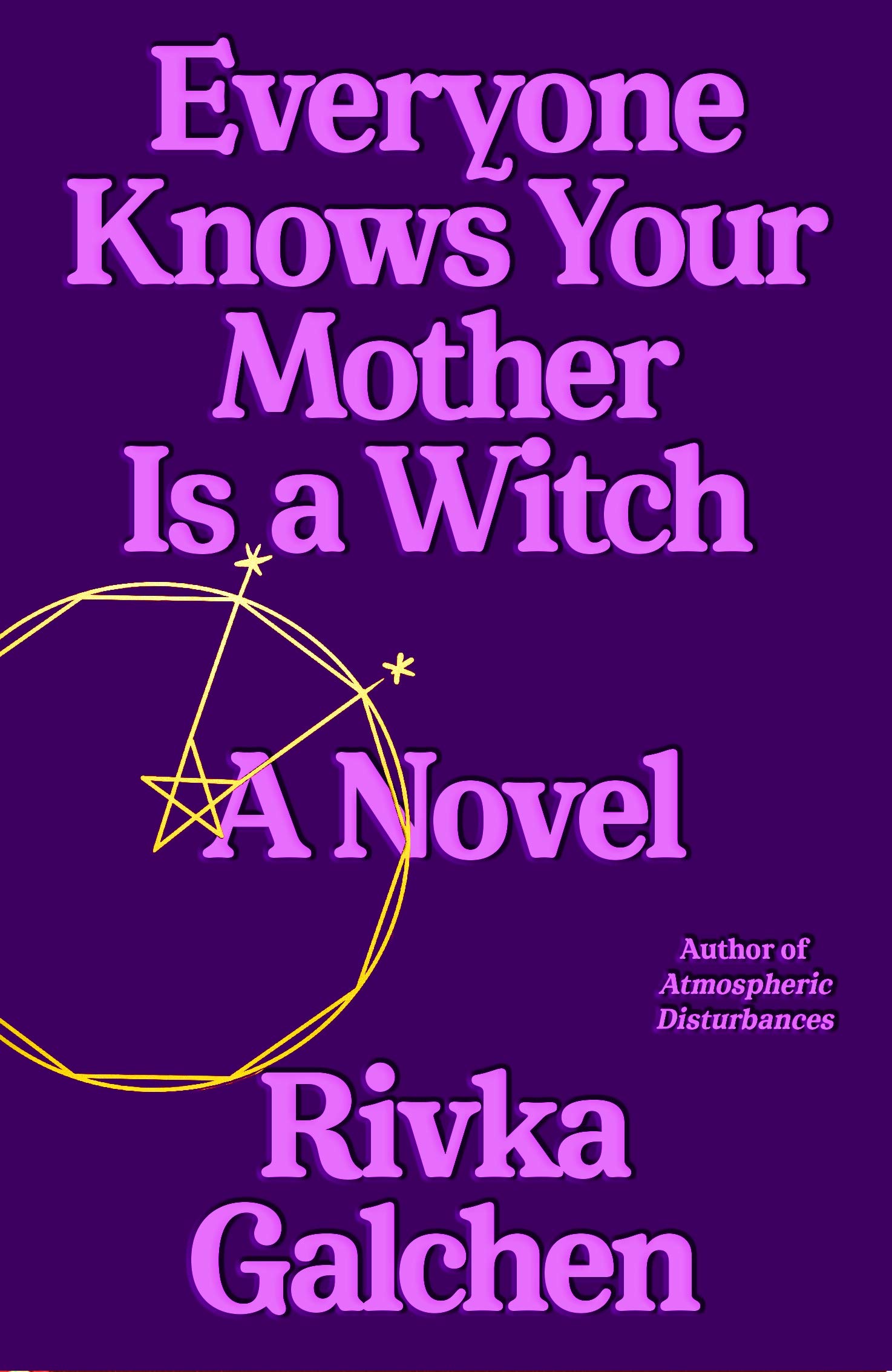
"Whimsical," "kaleidoscopic," "impossibly perfect" — all have been used to describe the work of Rivka Galchen, a brilliant medical student-turned-writer whose bibliography already includes a novel, a book of essays about motherhood, and a book for middle grade readers. Everyone Knows Your Mother Is a Witch will be her second novel for adults, set in the German duchy of Württemberg in 1618, where the widow and herbalist Katharina Kepler is accused of being a witch. It then falls on her son, Johannes, an Imperial Mathematician, to defend his mother. (The novel is constructed as the confession Katharina gives to her neighbor). Vulture's Kevin Lozano, who's read an early copy, raved that "the story is winding and hallucinatory, full of poison, gossip, and astral musings," while also drawing from real historical documents.
21. Animal, by Lisa Taddeo (June 8)
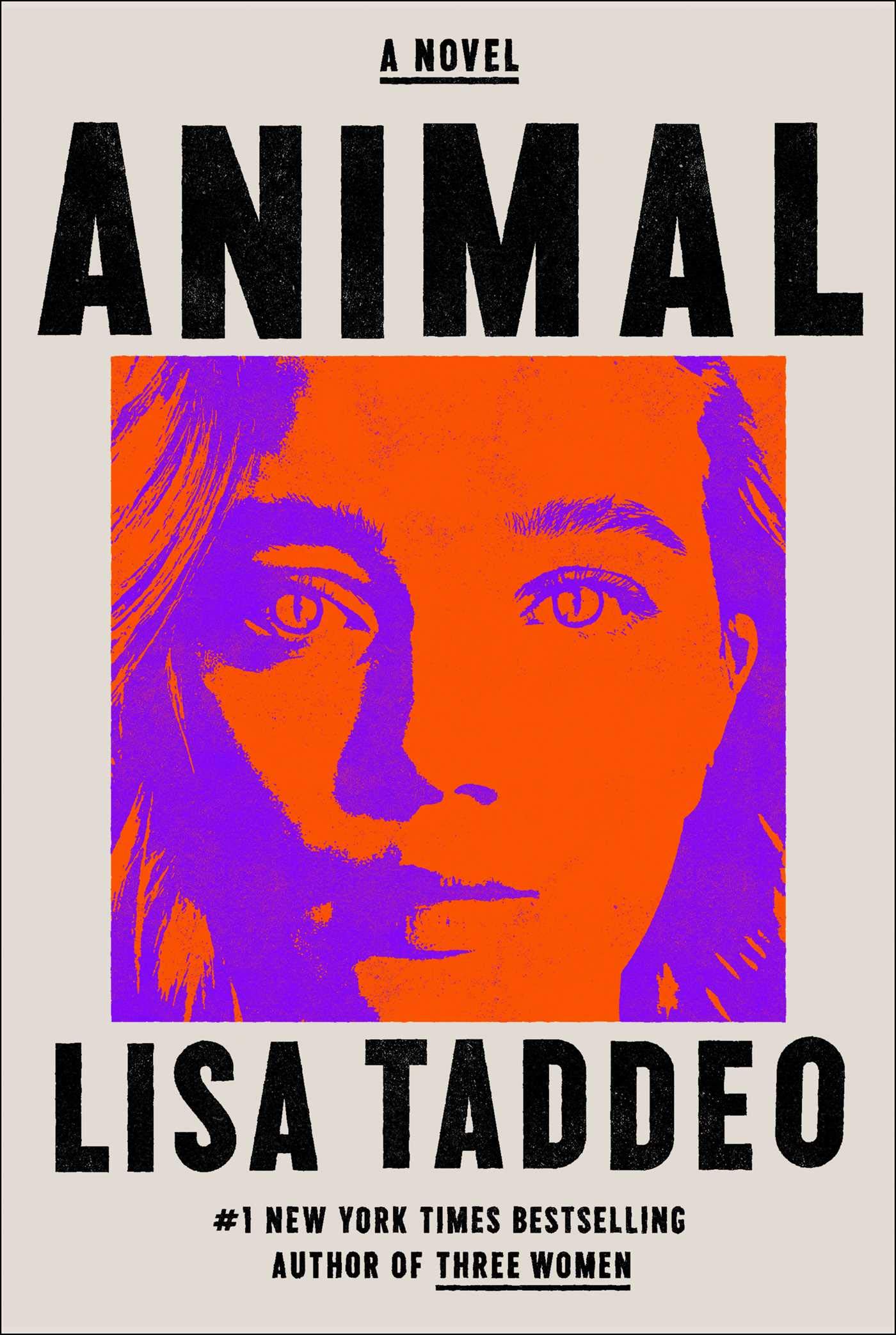
Lisa Taddeo's debut book of nonfiction, Three Women, was "the hottest book of the summer" of 2019, a groundbreaking work that drew from eight obsessive years of following the intimacies and heartbreak of her trio of subjects. Her new book, Animal, is a novel described by Entertainment Weekly as a "byproduct of the pain she witnessed while reporting out her blockbuster debut that followed the inner lives and desires of women." Taddeo says Animal is a book about "both sisterhood and rage," and it follows Joan, who flees New York for Los Angeles after a married man shoots himself in front of her. "It's very dark," Taddeo admitted to AuthorLink, "but, ultimately, I hope — hopeful."
22. Filthy Animals, by Brandon Taylor (June 22)
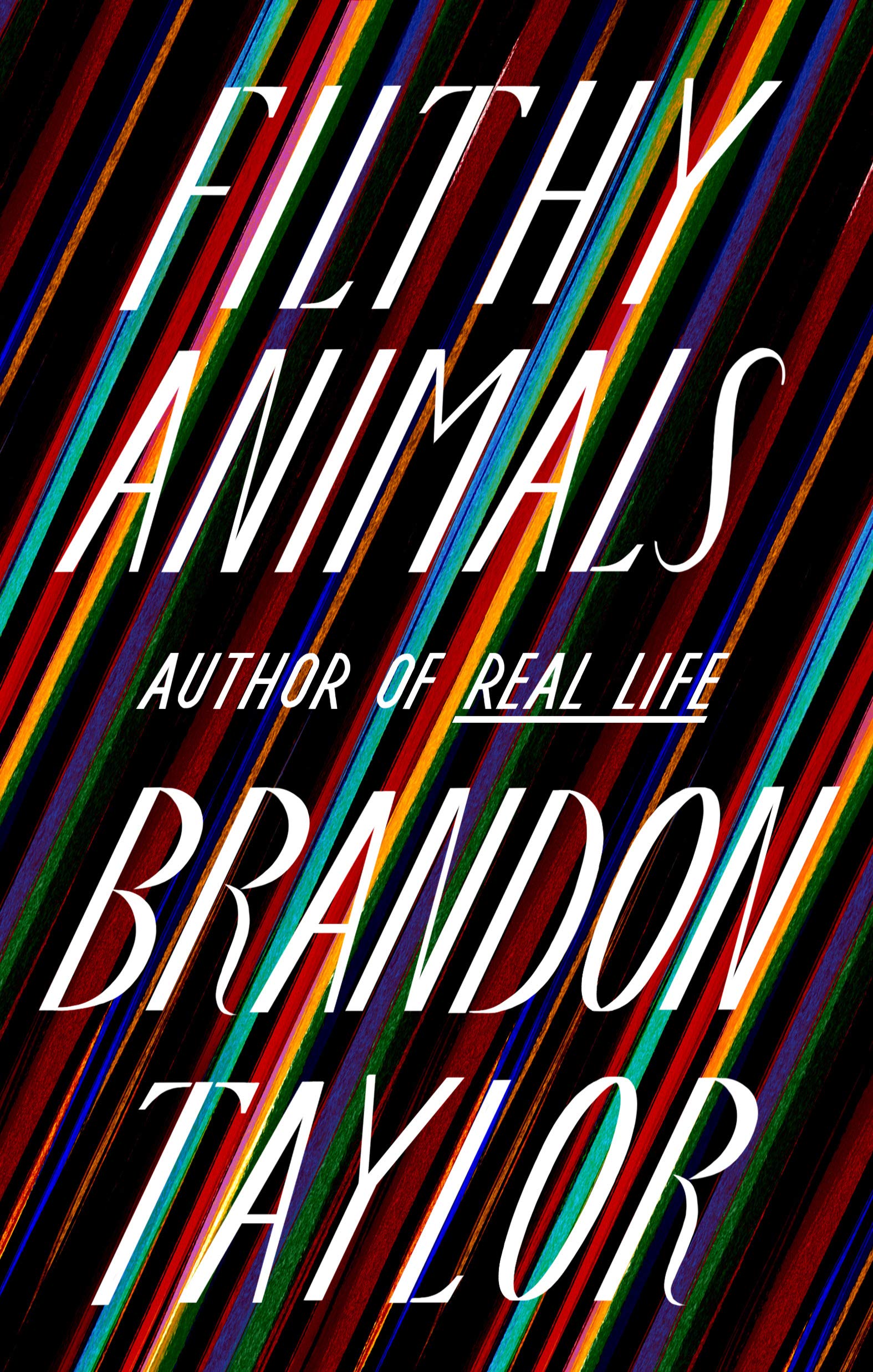
The biggest question I have about Filthy Animals is how, exactly, Brandon Taylor does it. Just last year, he published his debut novel, Real Life, about a gay Black student from a small town in Alabama who moves to the Midwest to attend a predominately white graduate biochemistry program. The book earned rave reviews, but Taylor's ascension didn't stop there: Real Life got a nod on the prestigious Man Booker shortlist, and is being adapted with Kid Cudi set to star in the lead role. Filthy Animals will bring Taylor back to the Midwest with a series of linked stories focused on young adults. As he's written for Lit Hub, it is the short form that Taylor considers his real love — despite his enviable success, he calls himself a "reluctant novelist." In fact, he told The Wall Street Journal that he believes he wrote more than half of the stories in Filthy Animals in a single week. If you aren't breathless yet, Taylor is already finalizing two more novels, Group Show and The Late Americans.
23. Seek You: A Journey Through American Loneliness, by Kristen Radtke (July 6)
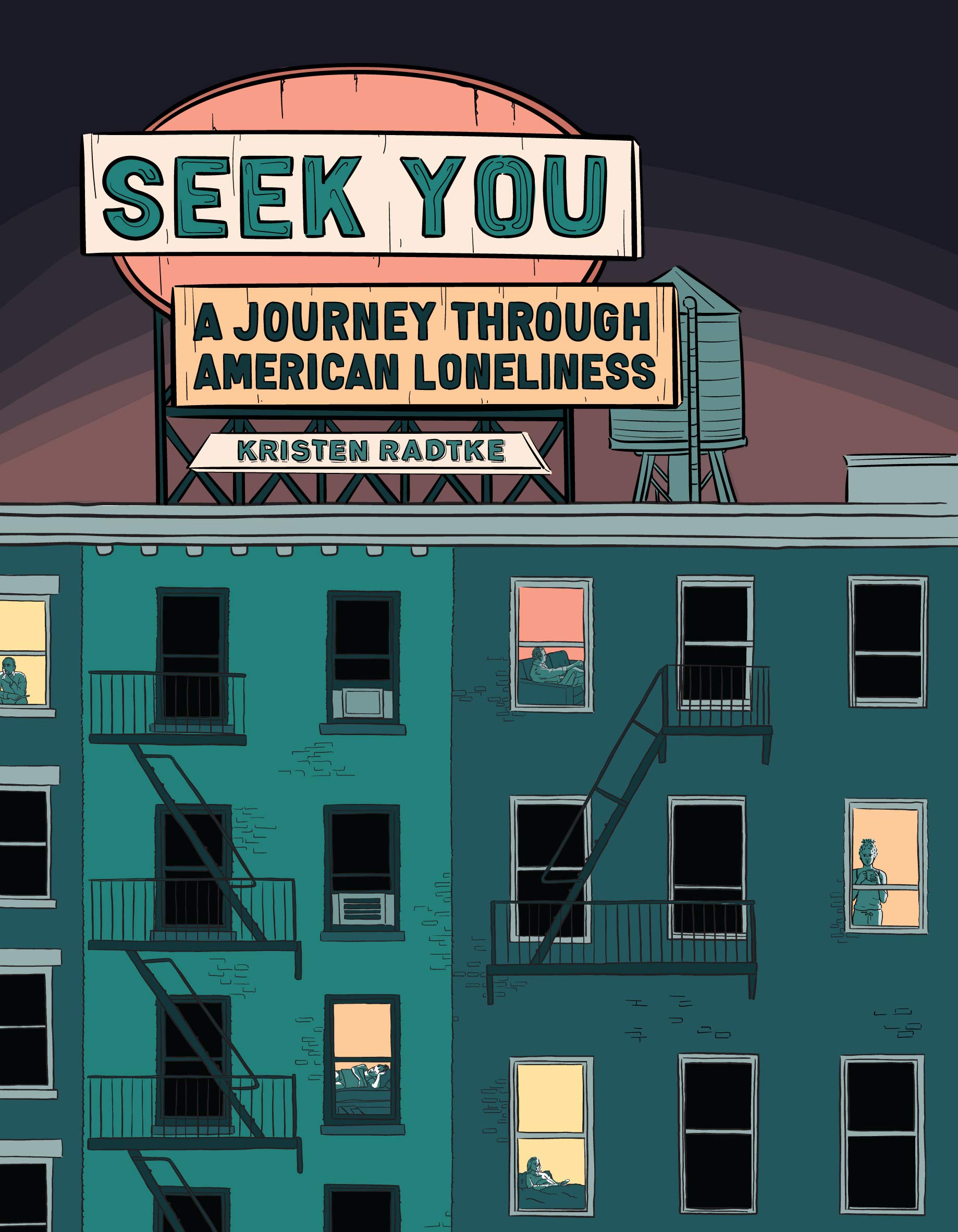
In December 2016, a month I remember experiencing in a kind of numb, shell-shocked state, graphic memoirist Kristen Radtke began publishing a series on loneliness in The New Yorker. Each installment focused on a different aspect of loneliness, as experienced in America's densest city, New York: "The Loneliness of the Parking-Lot Phone Call," "The Loneliness of the Subway Nap," "The Loneliness of Longing for Other People's Apartments." Though the series ended the following March, it seems now to have been the backbone of her second book, Seek You: A Journey Through American Loneliness, in which Radtke dives into questions of our inner lives and public selves as explored in both the nation's most crowded and most remote places. Of course, themes of isolation and alienation are particularly relevant now, when we have all become begrudging experts in being alone.
Also noteworthy: A Slow Fire Burning, by Paula Hawkins (August 31); On Freedom: Four Songs of Care and Constraint, by Maggie Nelson (Sept. 7); Harlem Shuffle, by Colson Whitehead (Sept. 14); Crossroads, by Jonathan Franzen (Oct. 5)
— Earlier from The Week: 31 TV shows to watch in 2021
— Earlier from The Week: 24 movies to watch in 2021
Jeva Lange was the executive editor at TheWeek.com. She formerly served as The Week's deputy editor and culture critic. She is also a contributor to Screen Slate, and her writing has appeared in The New York Daily News, The Awl, Vice, and Gothamist, among other publications. Jeva lives in New York City. Follow her on Twitter.
-
 The Olympic timekeepers keeping the Games on track
The Olympic timekeepers keeping the Games on trackUnder the Radar Swiss watchmaking giant Omega has been at the finish line of every Olympic Games for nearly 100 years
-
 Will increasing tensions with Iran boil over into war?
Will increasing tensions with Iran boil over into war?Today’s Big Question President Donald Trump has recently been threatening the country
-
 Corruption: The spy sheikh and the president
Corruption: The spy sheikh and the presidentFeature Trump is at the center of another scandal
-
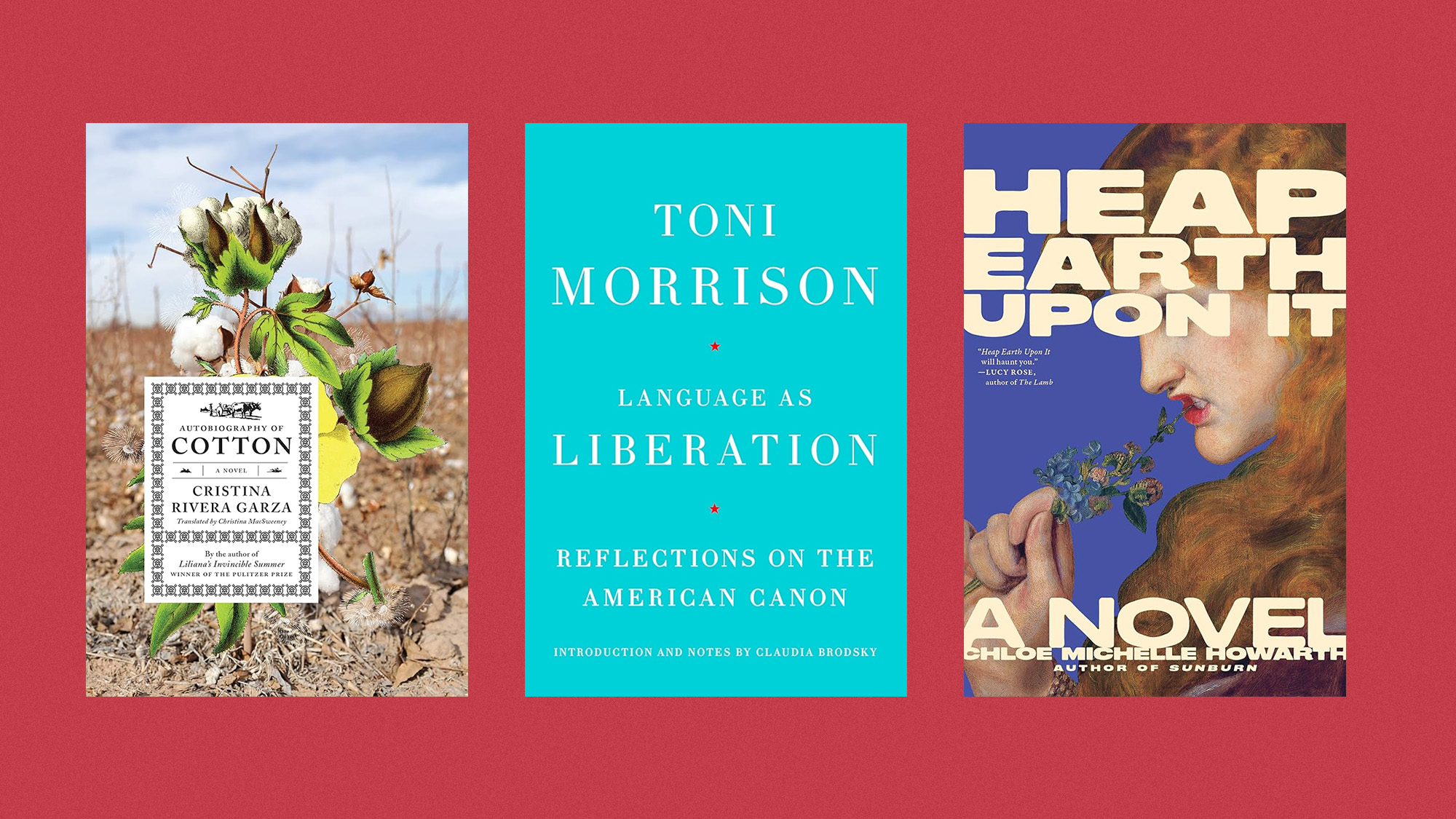 February’s books feature new Toni Morrison, a sapphic love tale and a criticism of Mexican history
February’s books feature new Toni Morrison, a sapphic love tale and a criticism of Mexican historyThe Week Recommends This month’s new releases include ‘Autobiography of Cotton’ by Cristina Rivera Garza, ‘Language as Liberation’ by Toni Morrison and ‘Heap Earth Upon It’ by Chloe Michelle Howarth
-
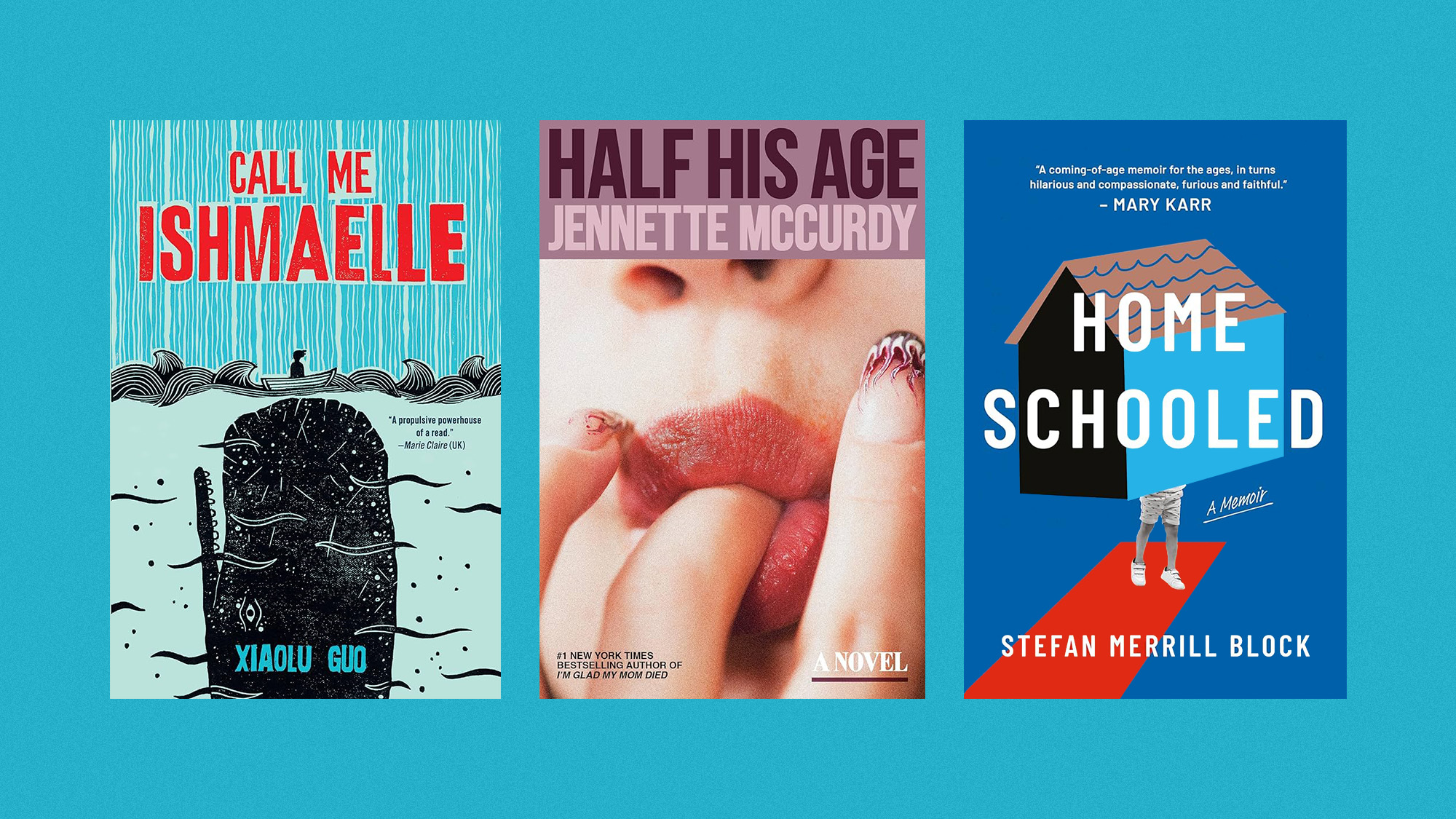 January’s books feature a revisioned classic, a homeschooler’s memoir and a provocative thriller dramedy
January’s books feature a revisioned classic, a homeschooler’s memoir and a provocative thriller dramedyThe Week Recommends This month’s new releases include ‘Call Me Ishmaelle’ by Xiaolu Guo, ‘Homeschooled: A Memoir’ by Stefan Merrill Block, ‘Anatomy of an Alibi’ by Ashley Elston and ‘Half His Age’ by Jennette McCurdy
-
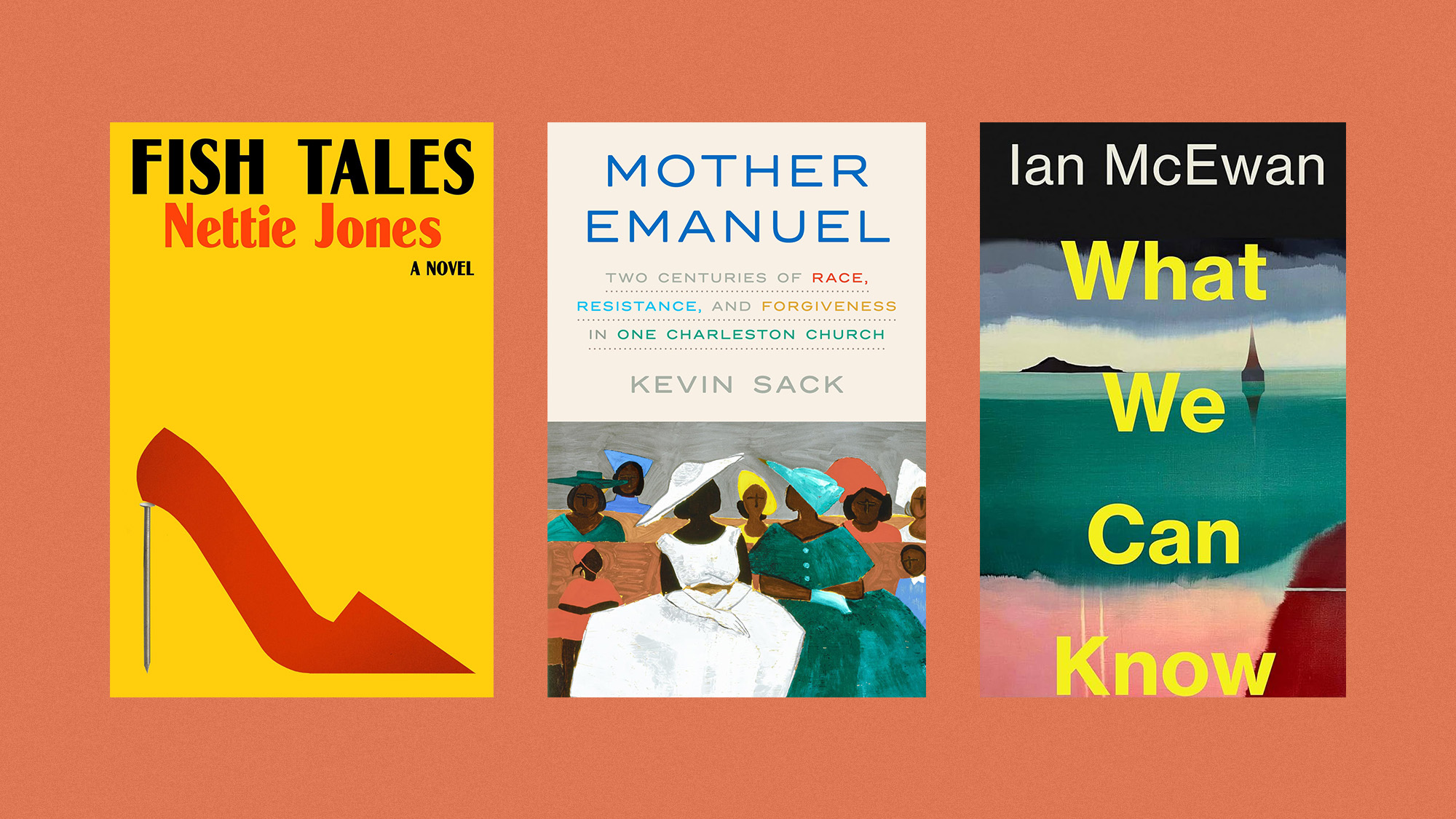 The best books of 2025
The best books of 2025The Week Recommends A deep dive into the site of a mass shooting, a new release from the author of ‘Atonement’ and more
-
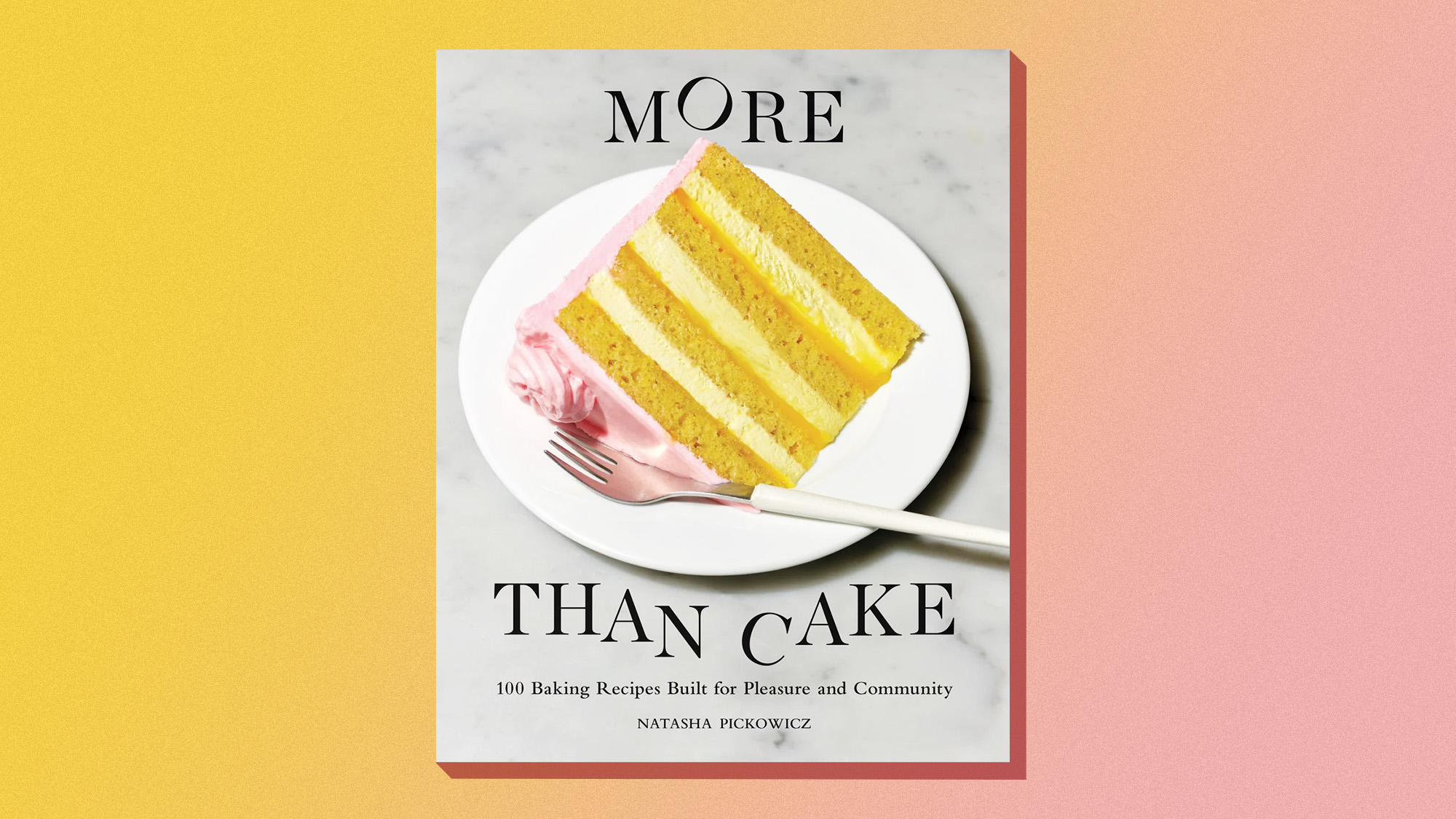 One great cookbook: Natasha Pickowicz’s ‘More Than Cake’
One great cookbook: Natasha Pickowicz’s ‘More Than Cake’the week recommends The power of pastry brought to inspired life
-
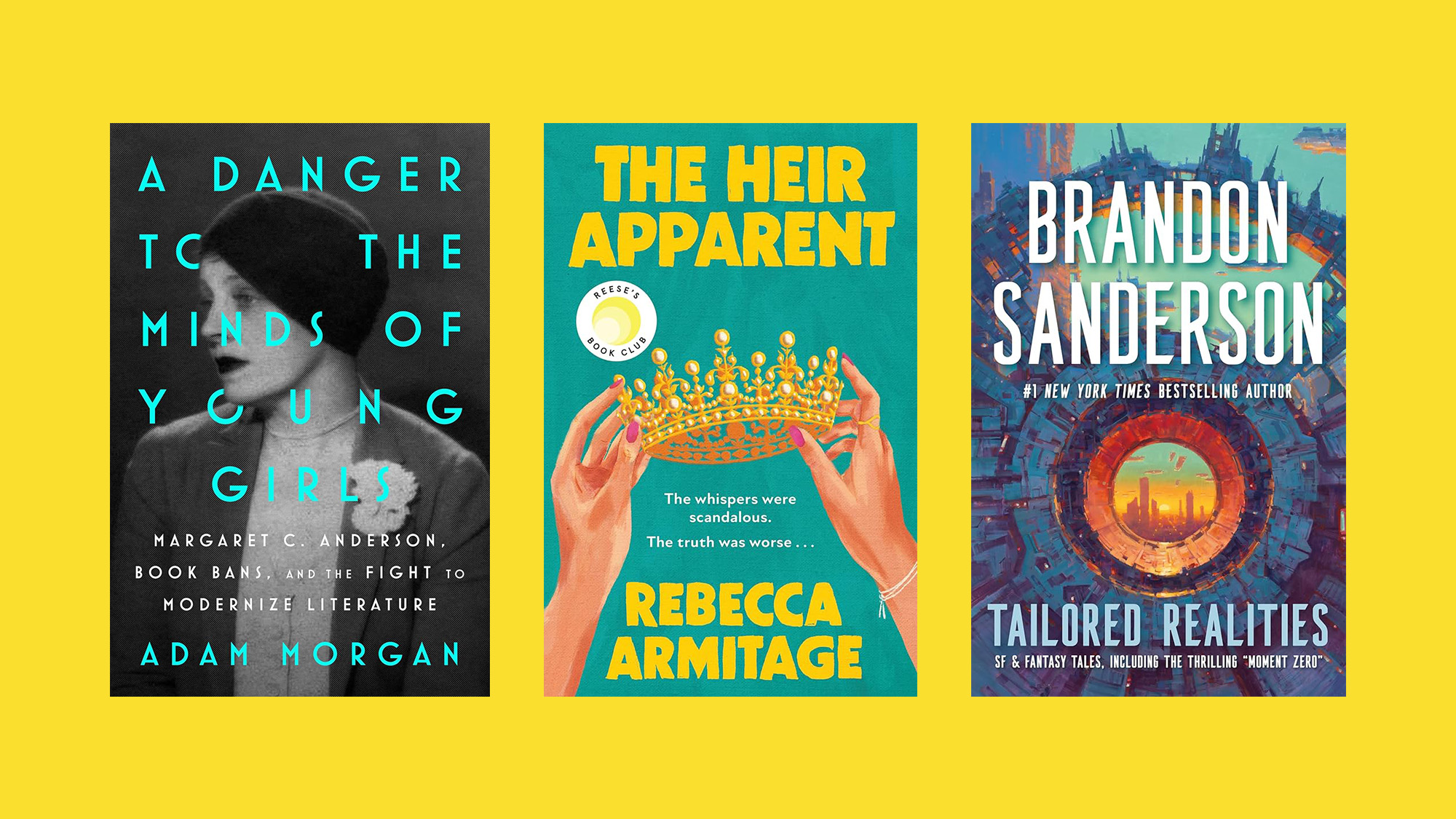 December’s books feature otherworldly tales, a literary icon’s life story and an adult royal romp
December’s books feature otherworldly tales, a literary icon’s life story and an adult royal rompThe Week Recommends This month's new releases include ‘The Heir Apparent’ by Rebecca Armitage and ‘Tailored Realities’ by Brandon Sanderson
-
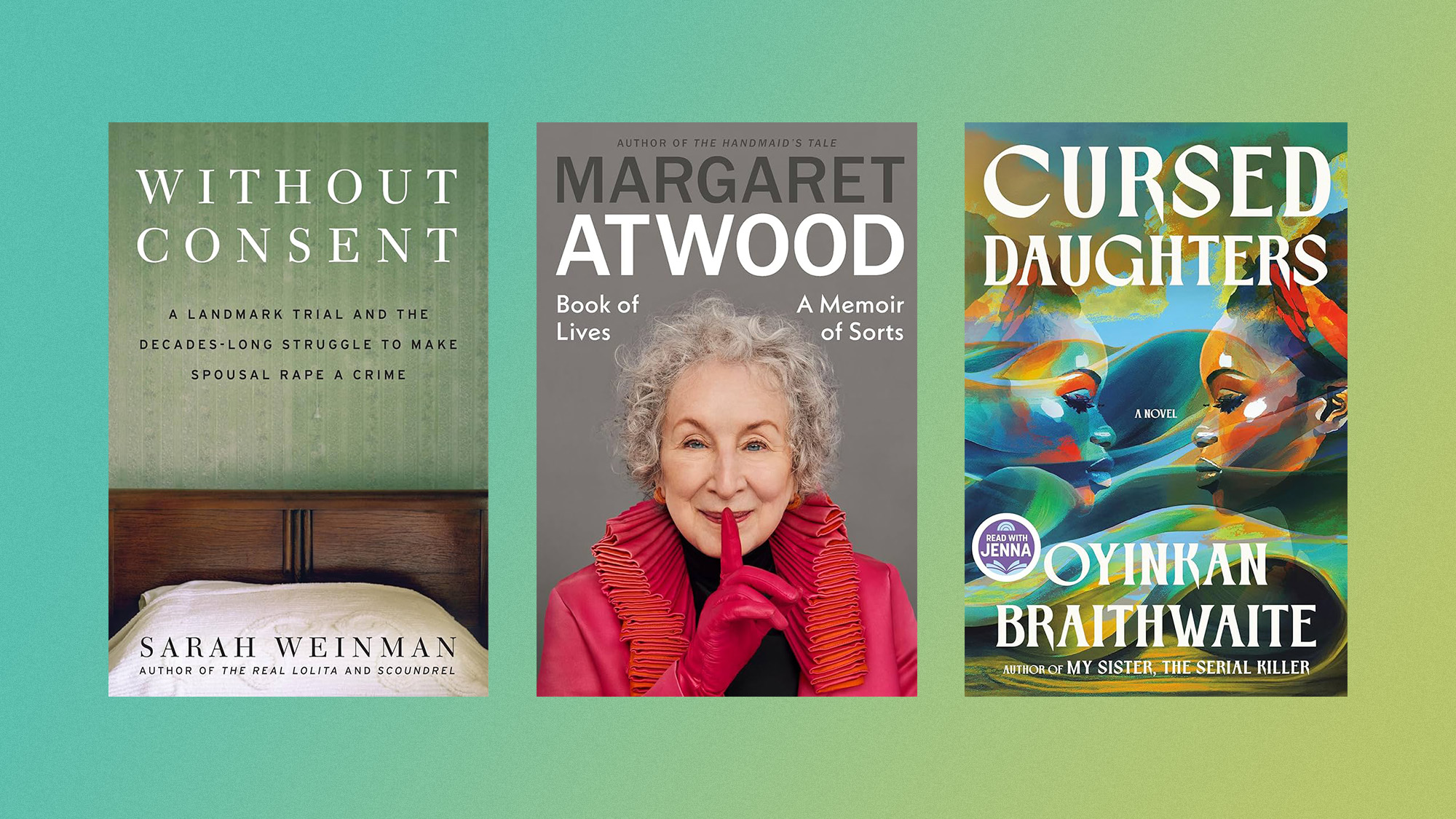 Margaret Atwood’s memoir, intergenerational trauma and the fight to make spousal rape a crime: Welcome to November books
Margaret Atwood’s memoir, intergenerational trauma and the fight to make spousal rape a crime: Welcome to November booksThe Week Recommends This month's new releases include ‘Book of Lives: A Memoir of Sorts’ by Margaret Atwood, ‘Cursed Daughters’ by Oyinkan Braithwaite and 'Without Consent' by Sarah Weinman
-
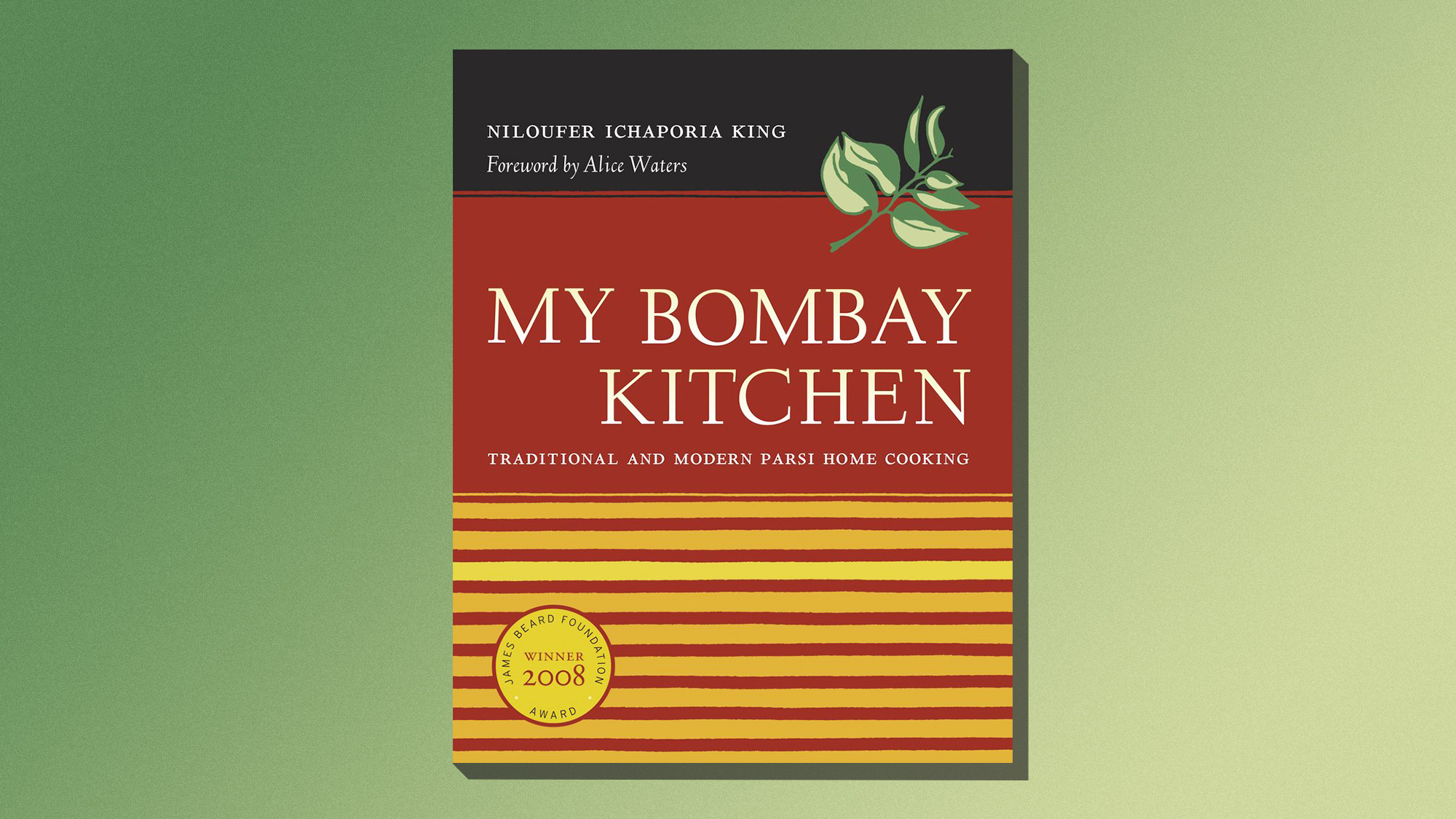 One great cookbook: Niloufer Ichaporia King’s ‘My Bombay Kitchen’
One great cookbook: Niloufer Ichaporia King’s ‘My Bombay Kitchen’The Week Recommends A personal, scholarly wander through a singular cuisine
-
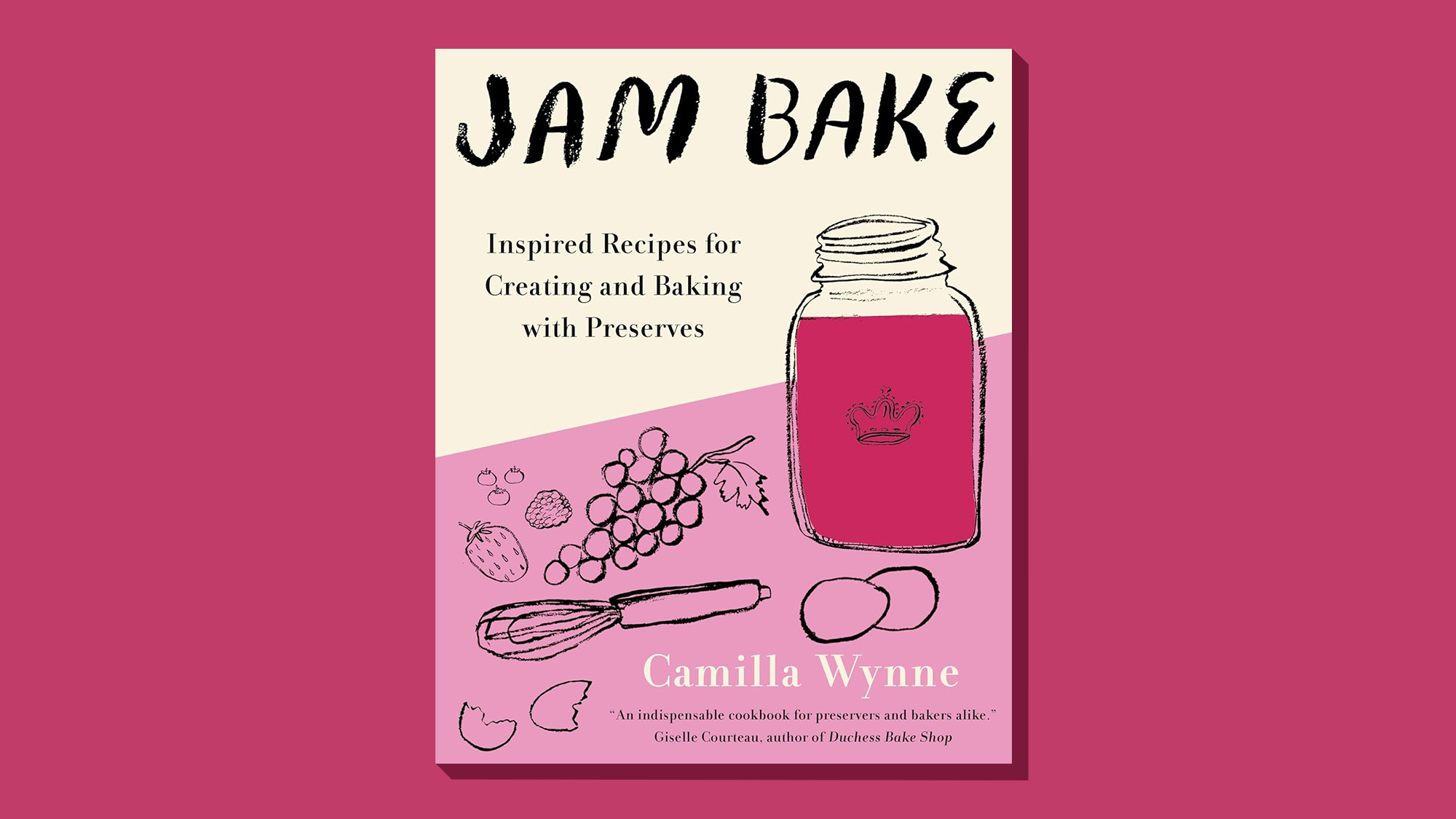 One great cookbook: Camilla Wynne's 'Jam Bake'
One great cookbook: Camilla Wynne's 'Jam Bake'The Week Recommends A guide to pristine jam-making, plus the baked goods that love them
